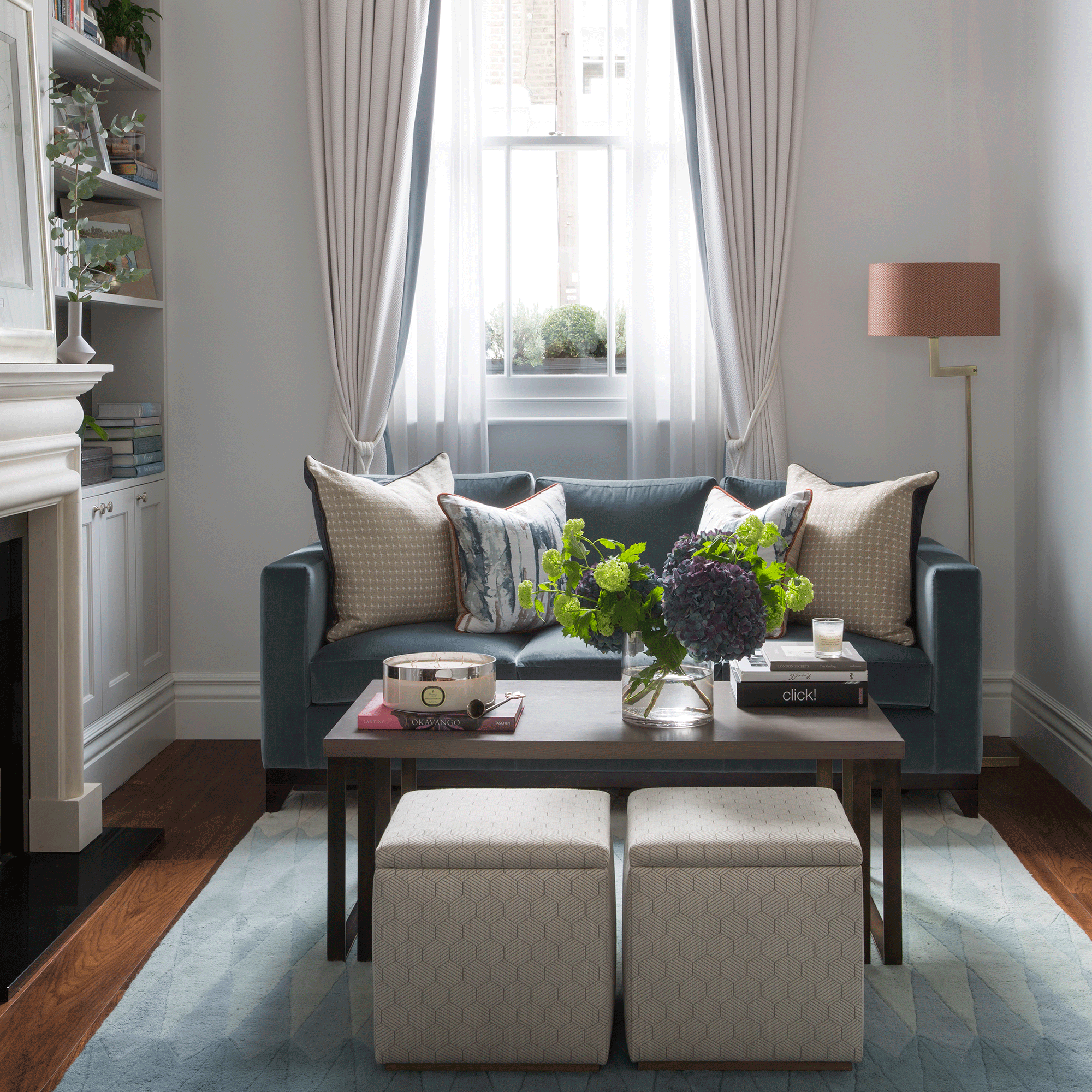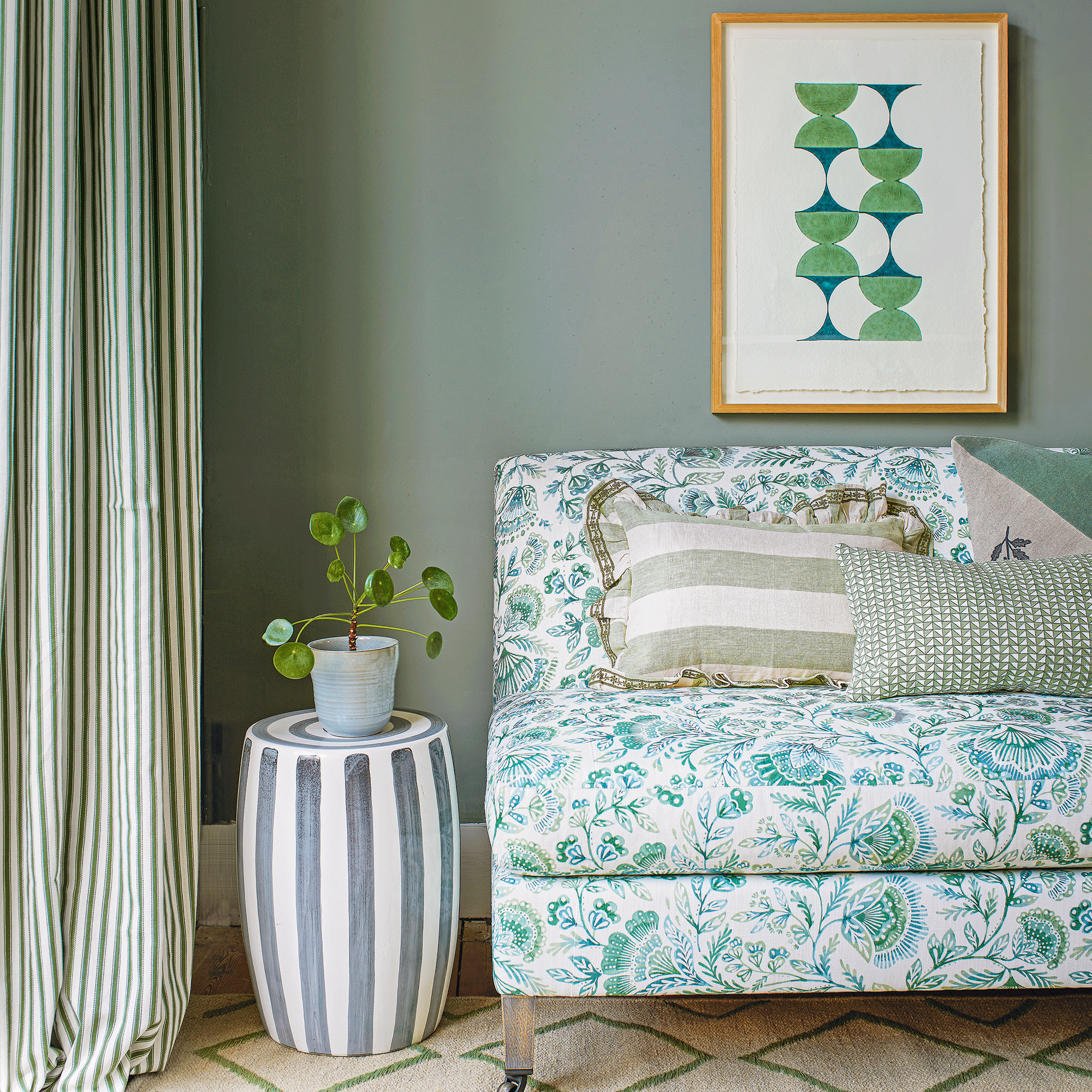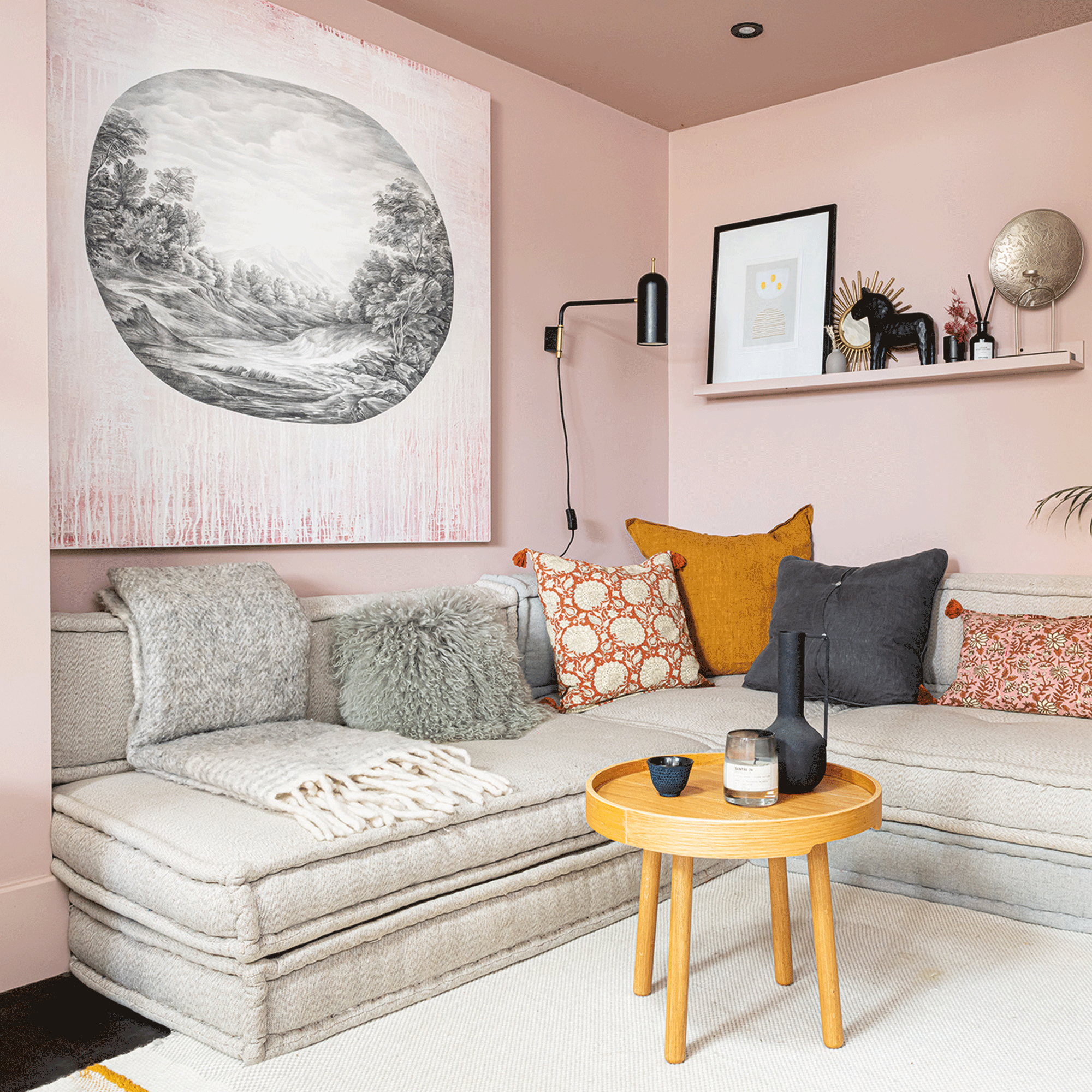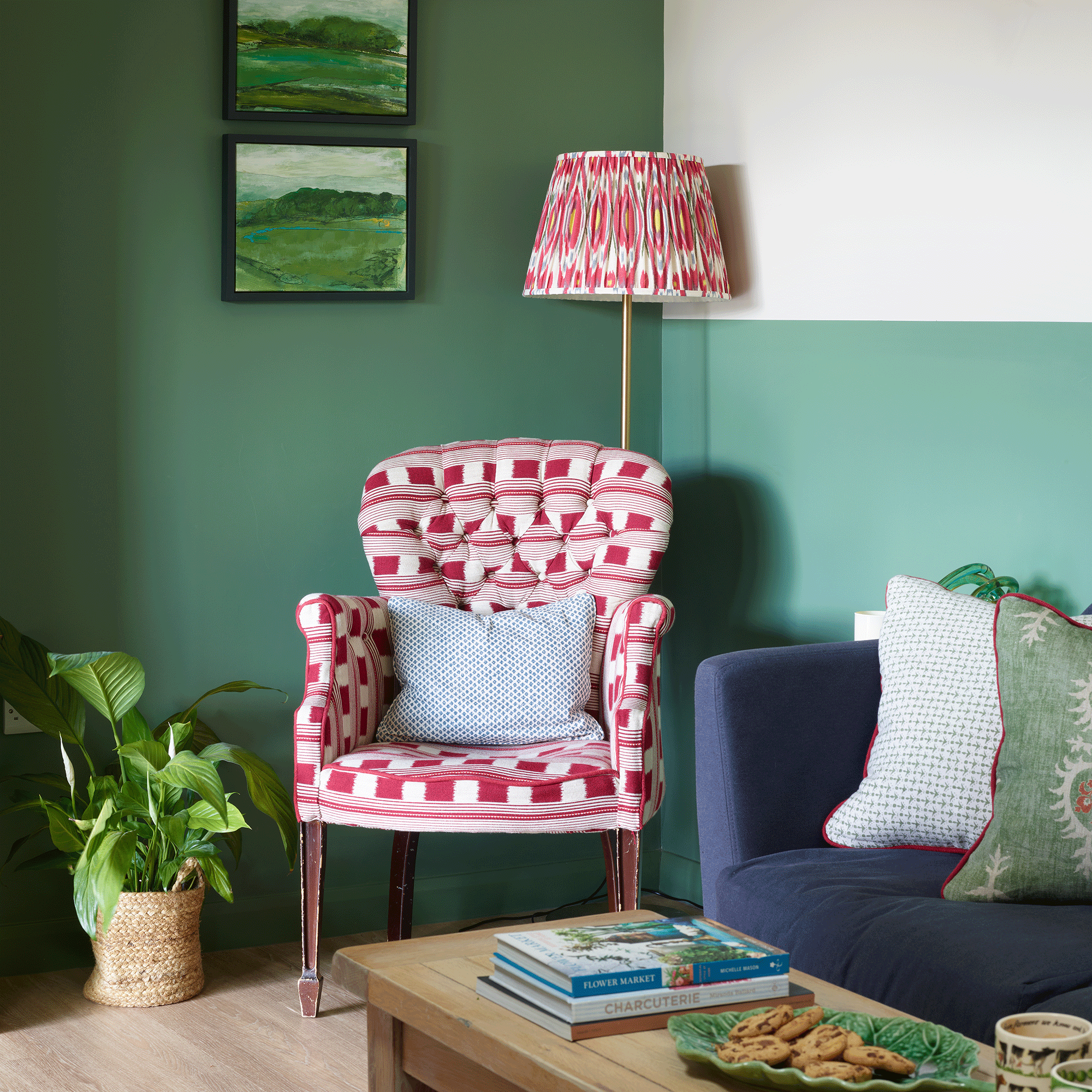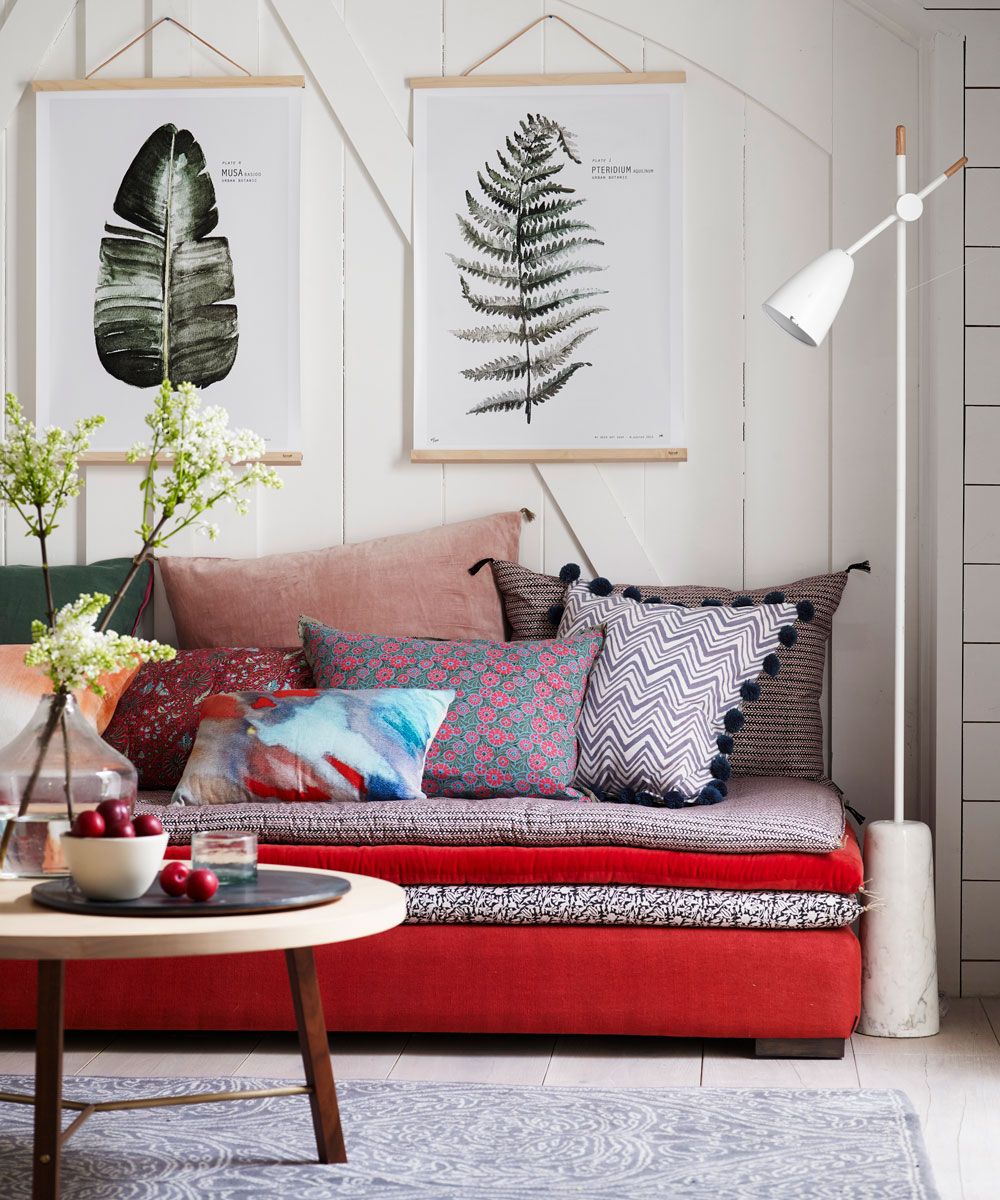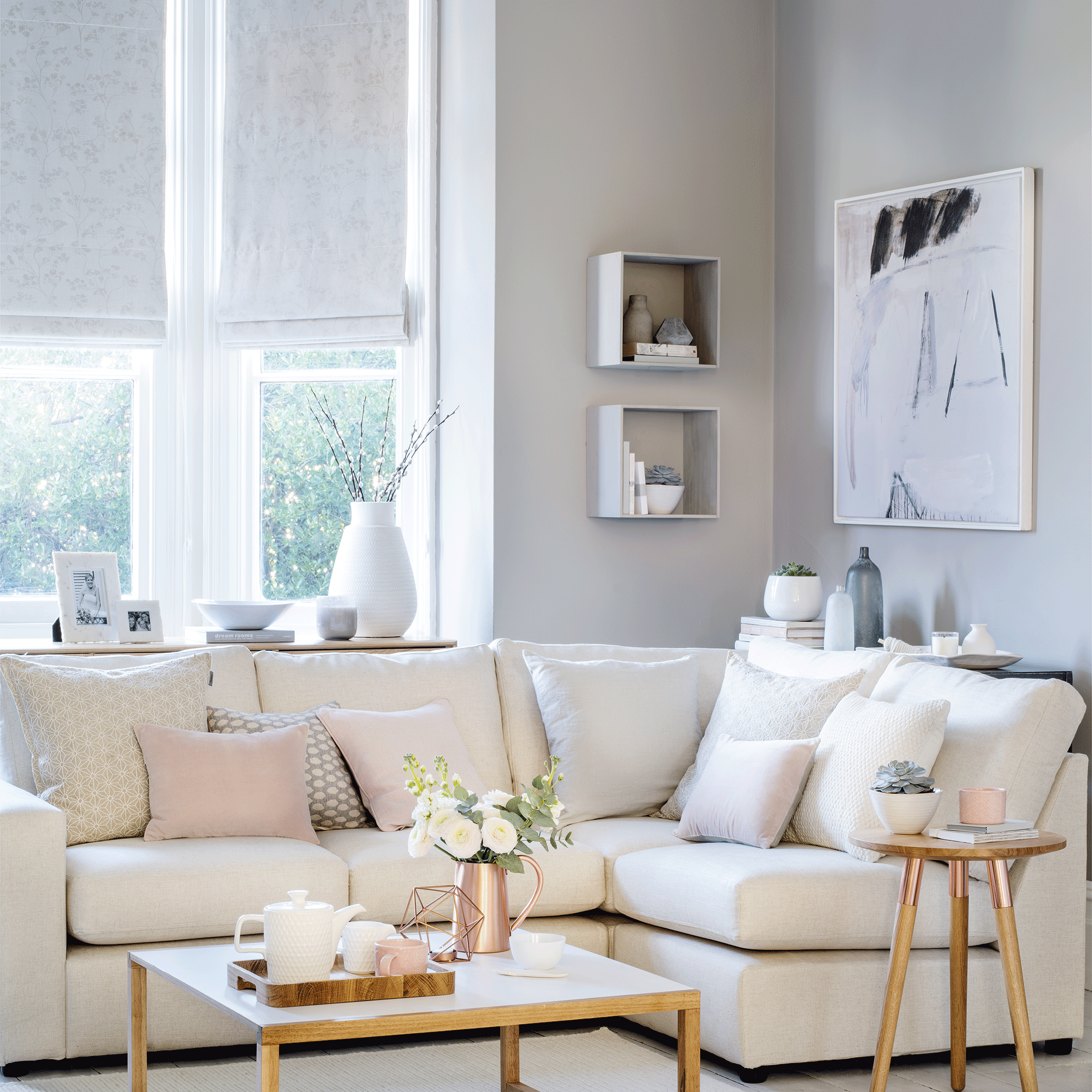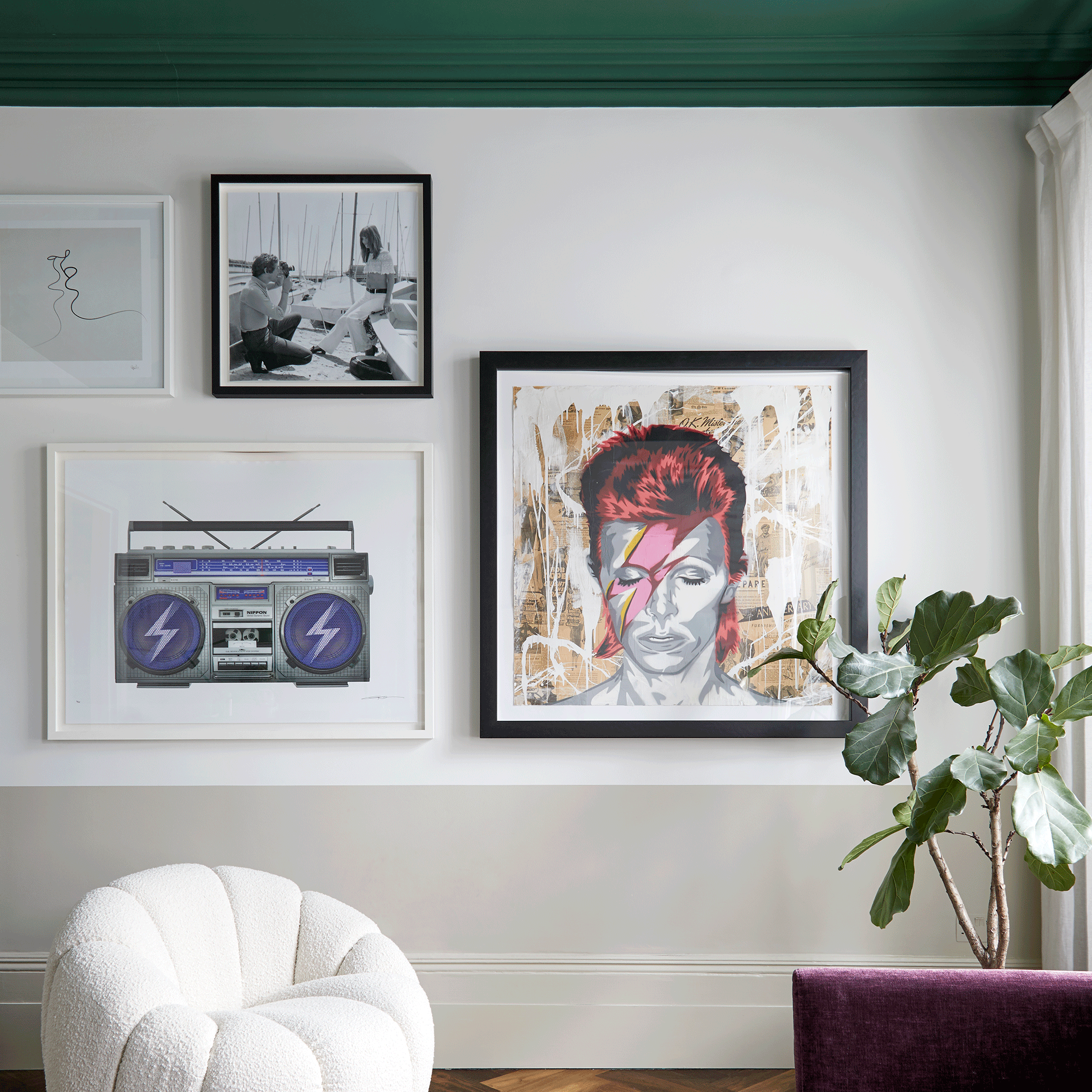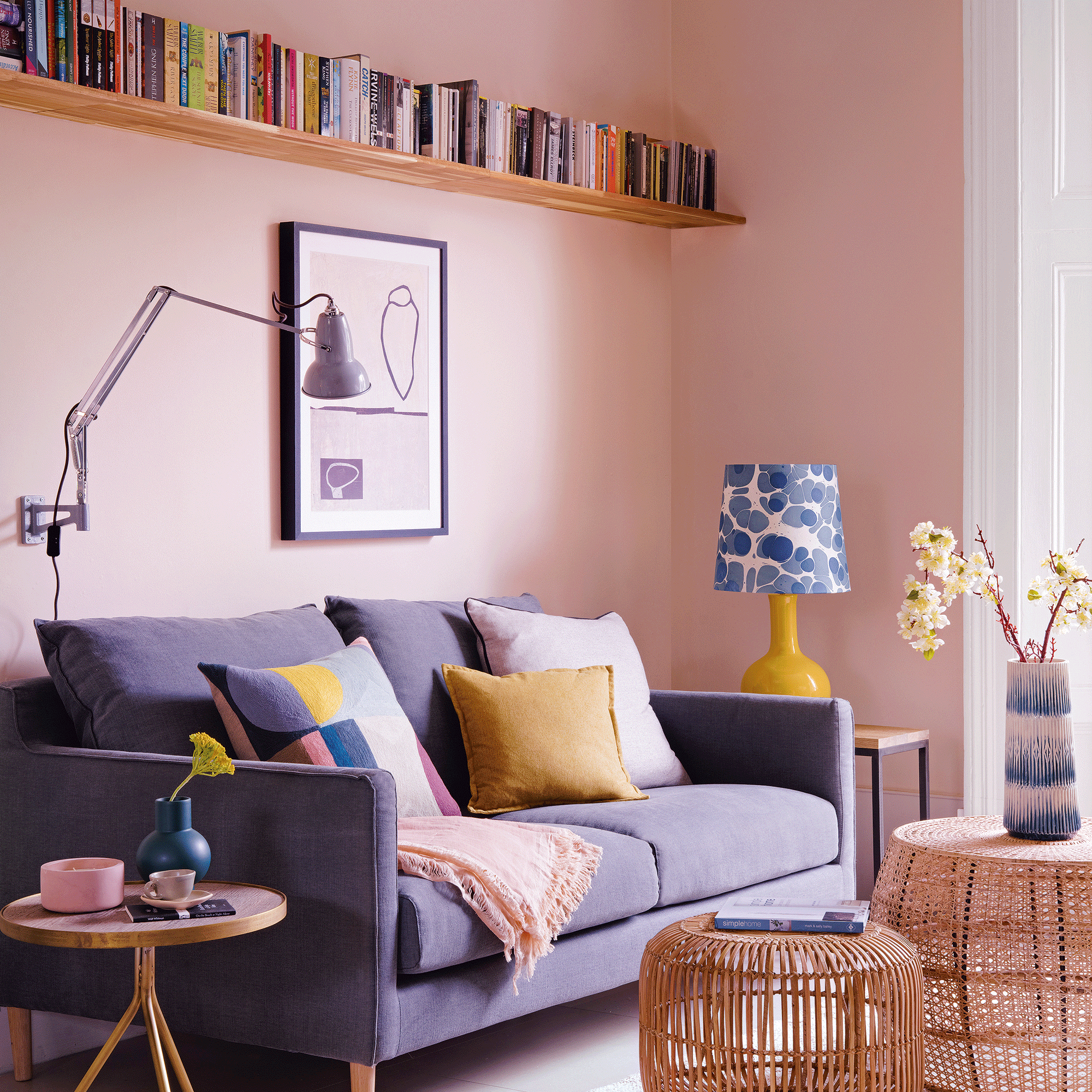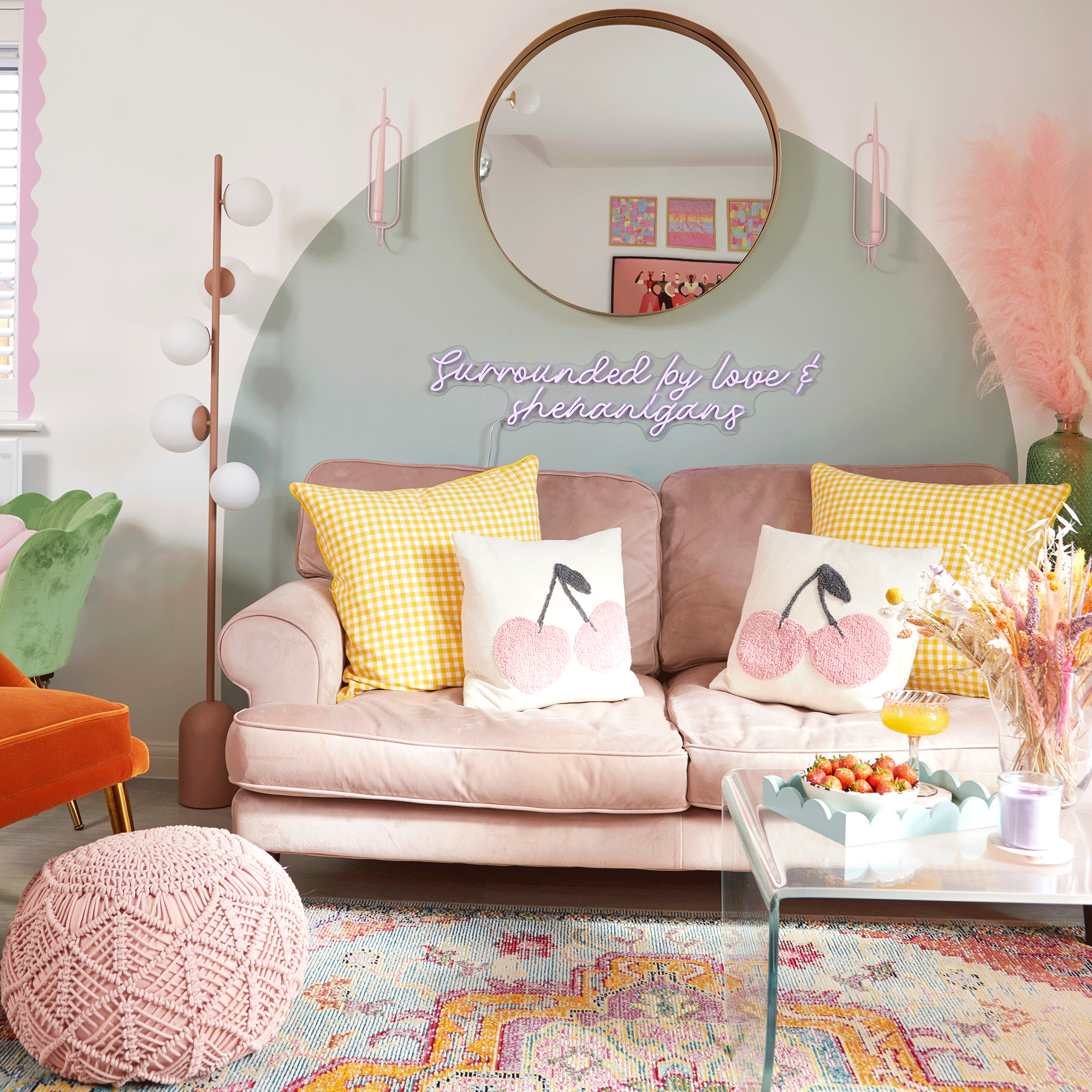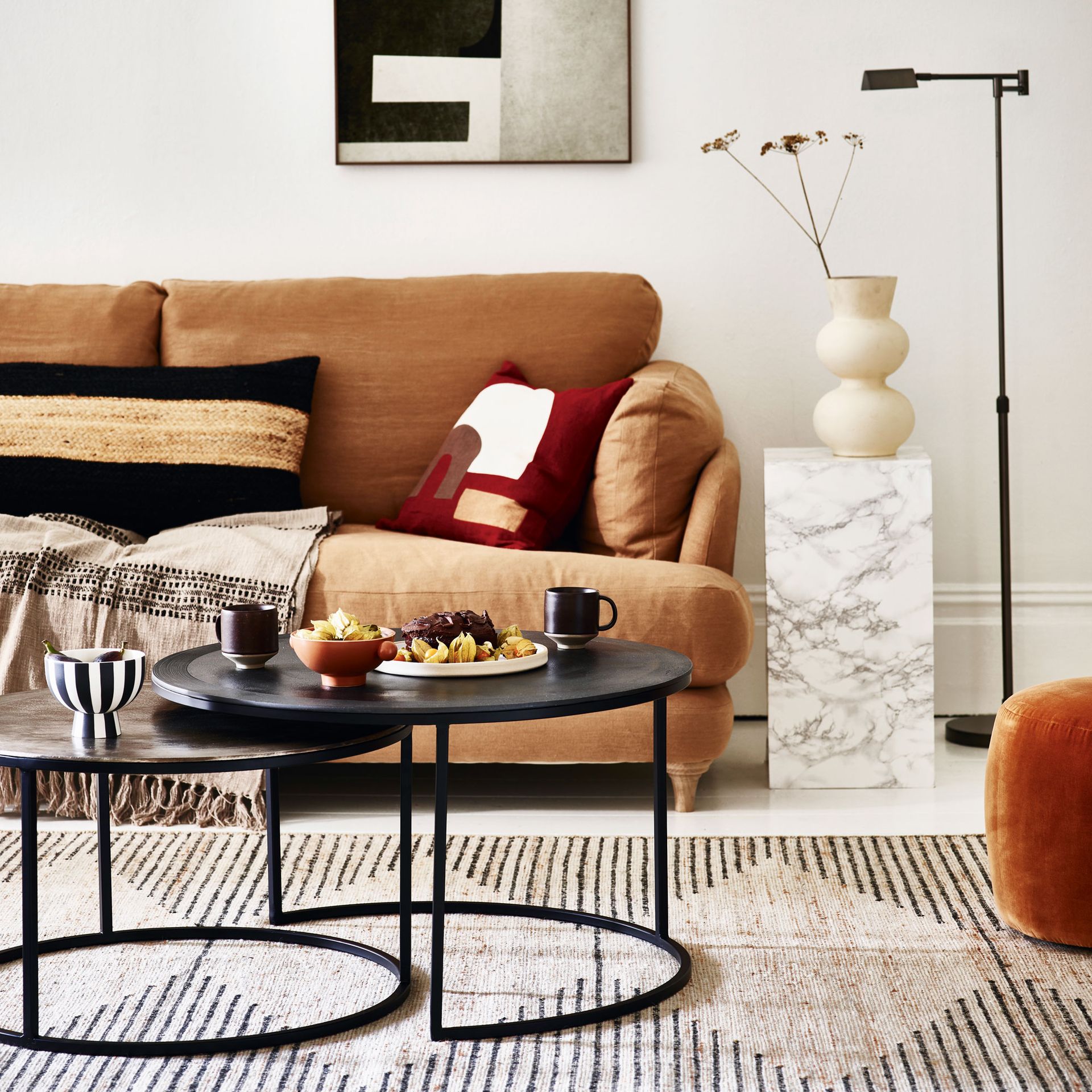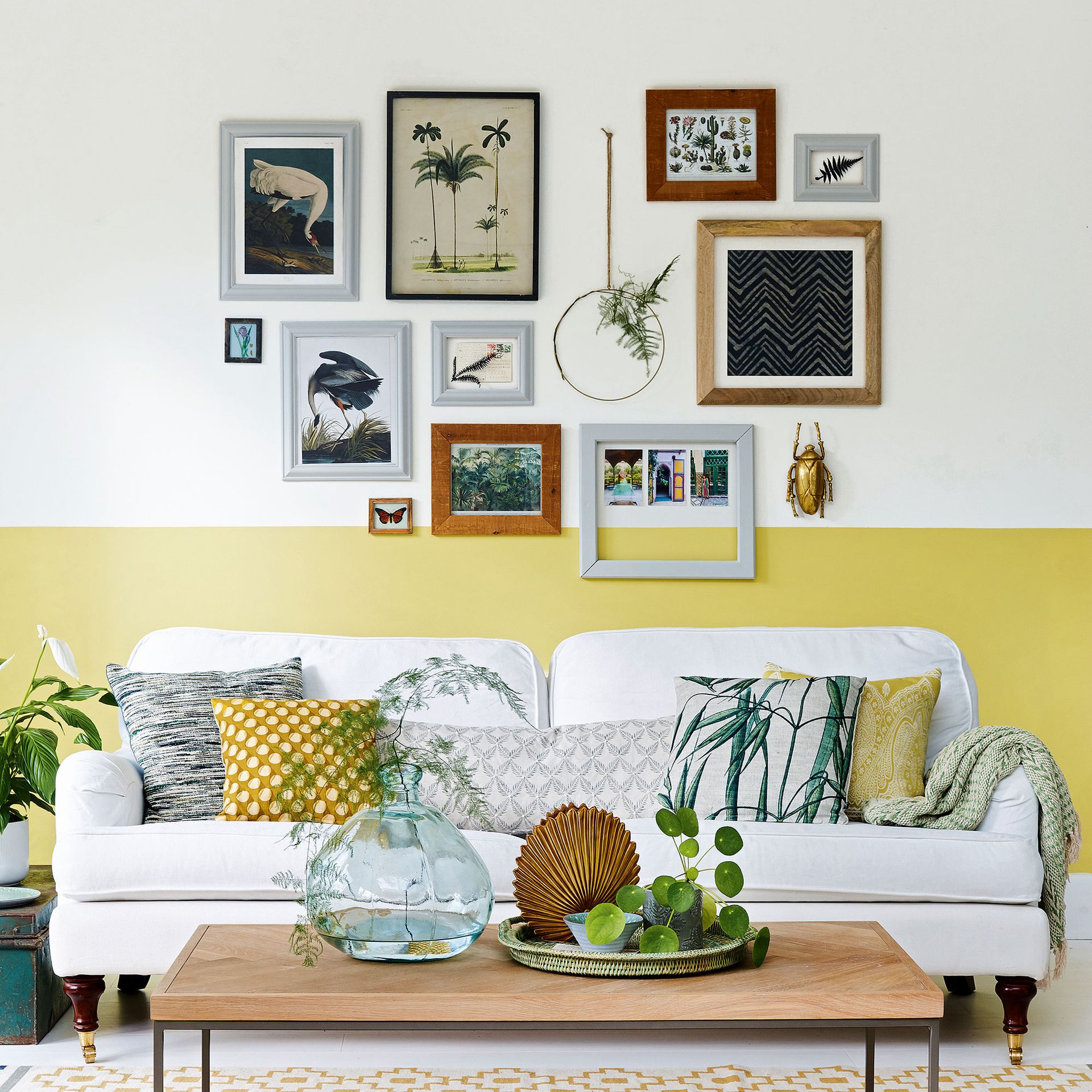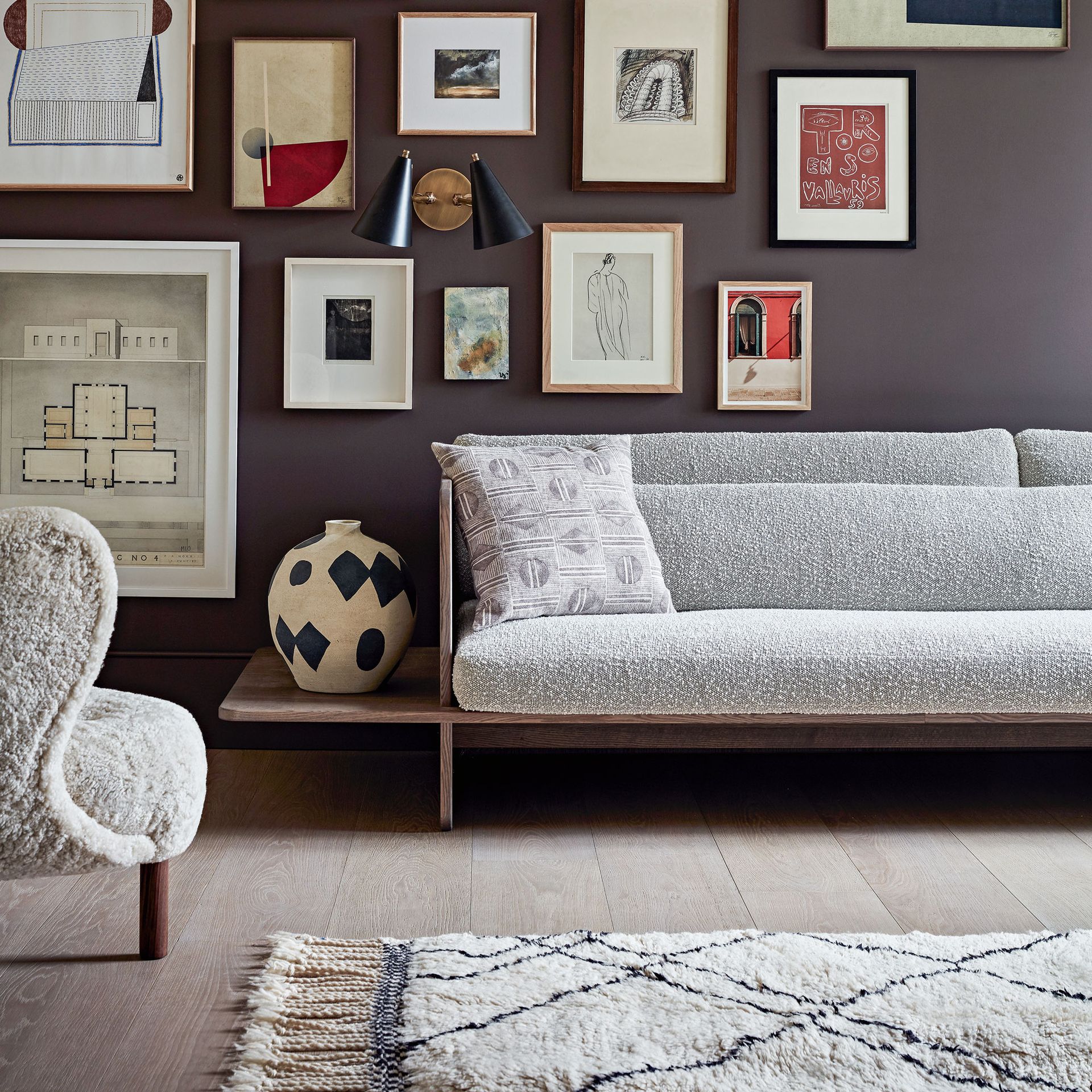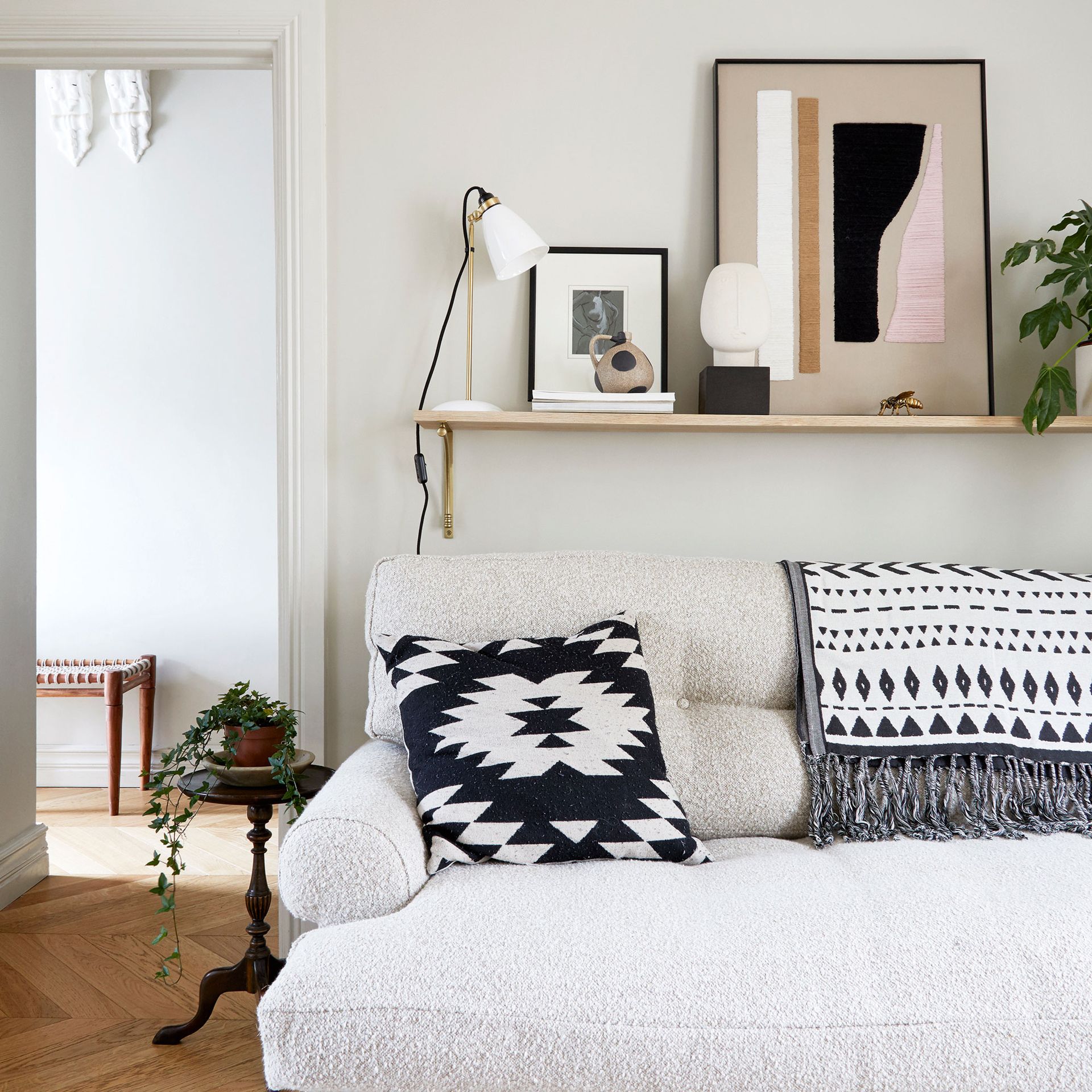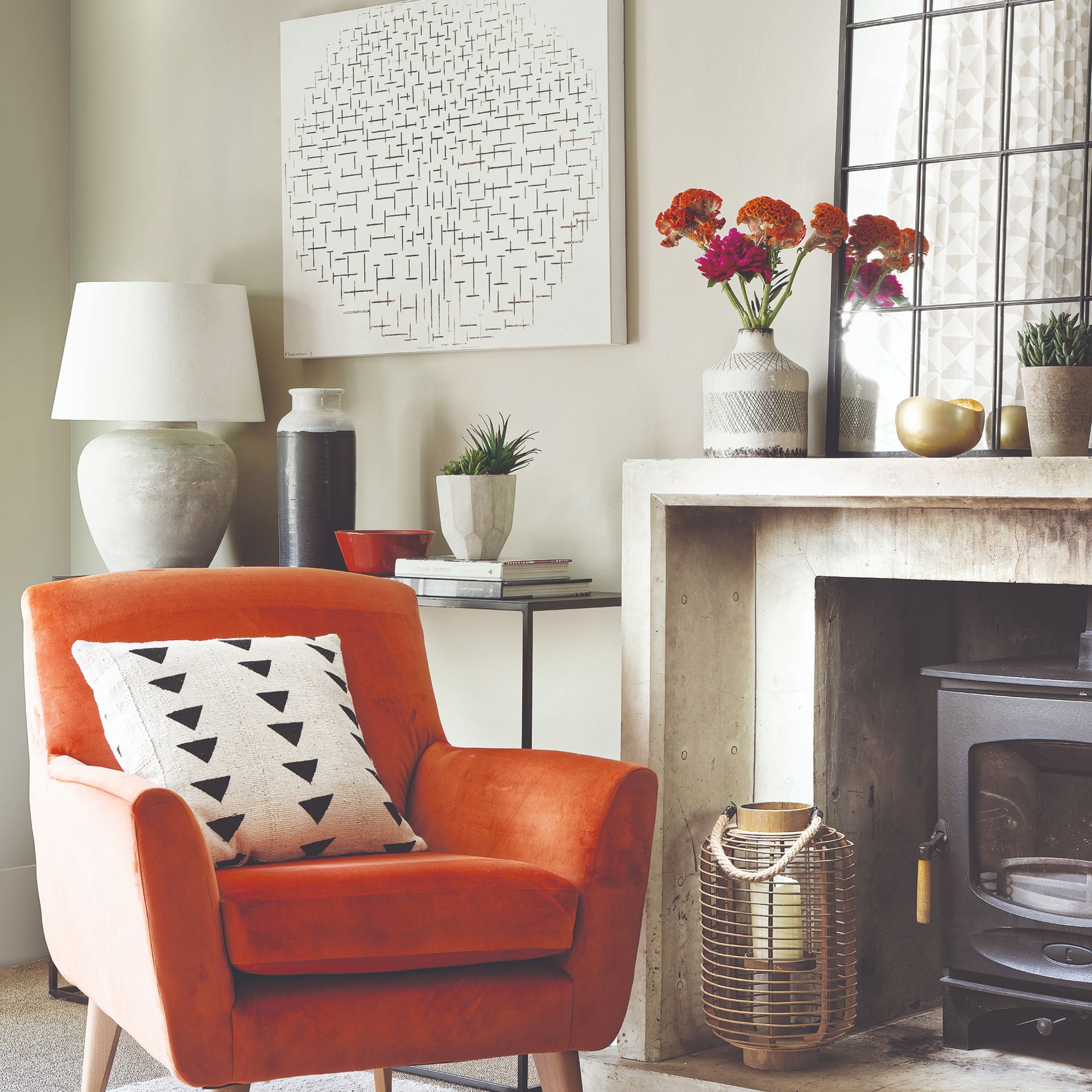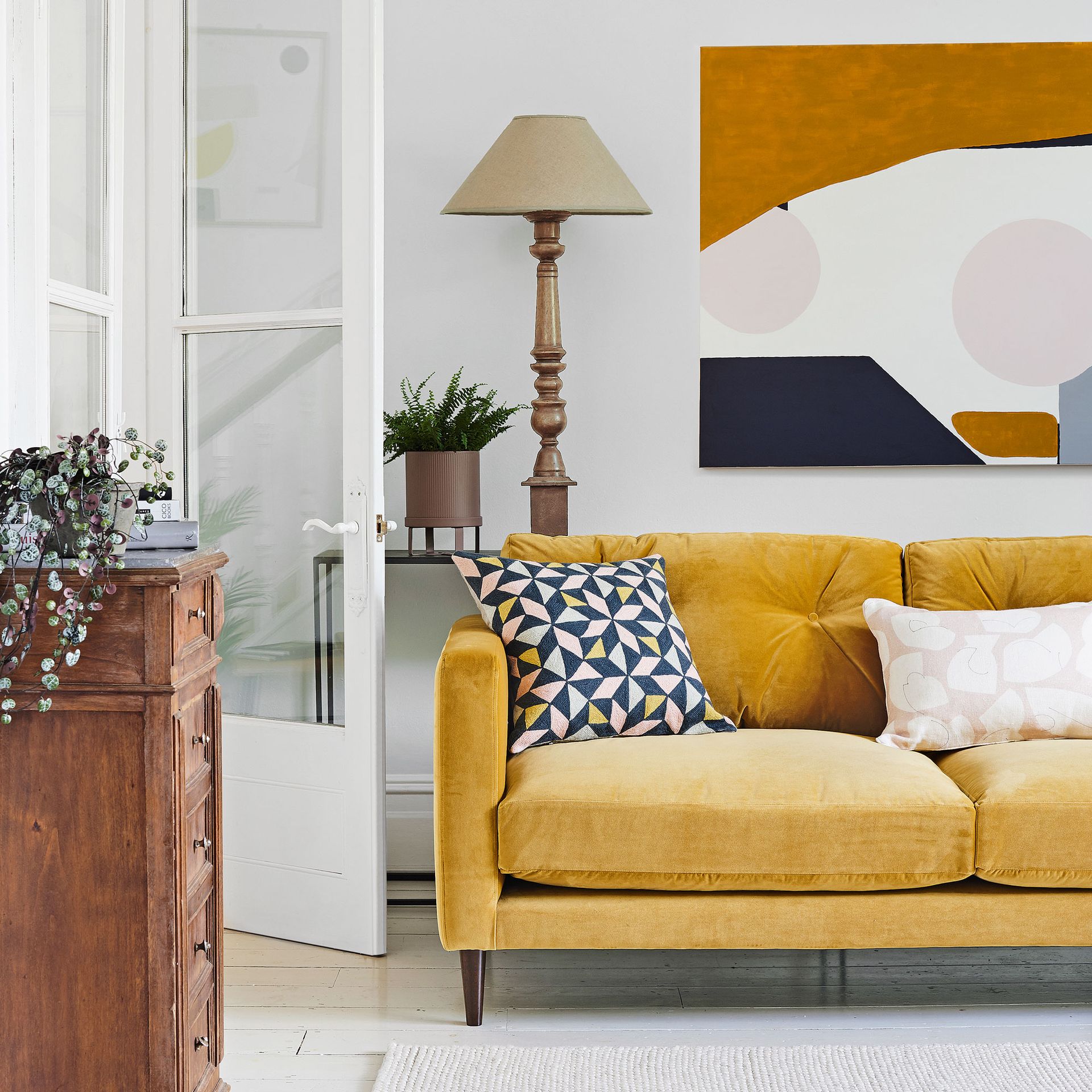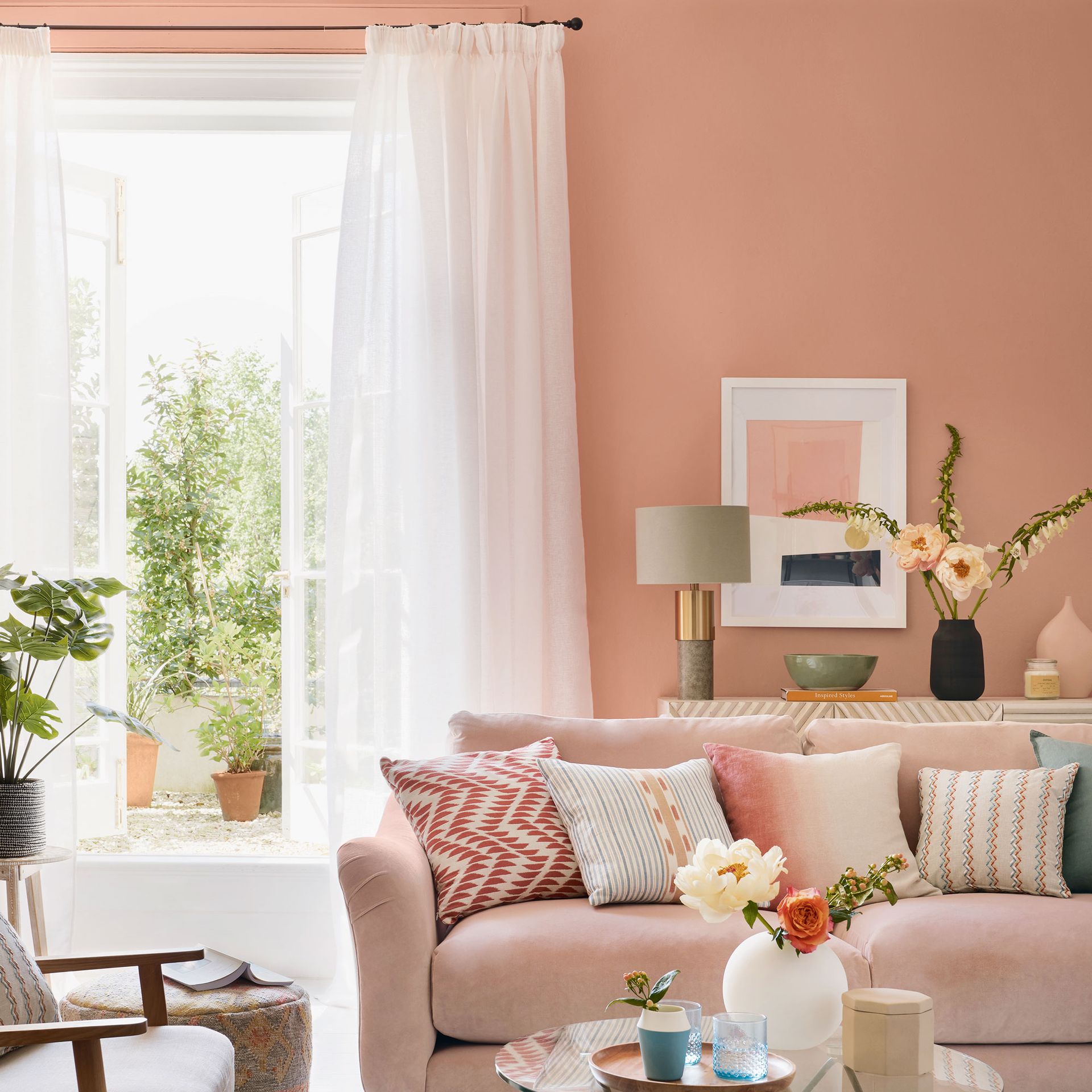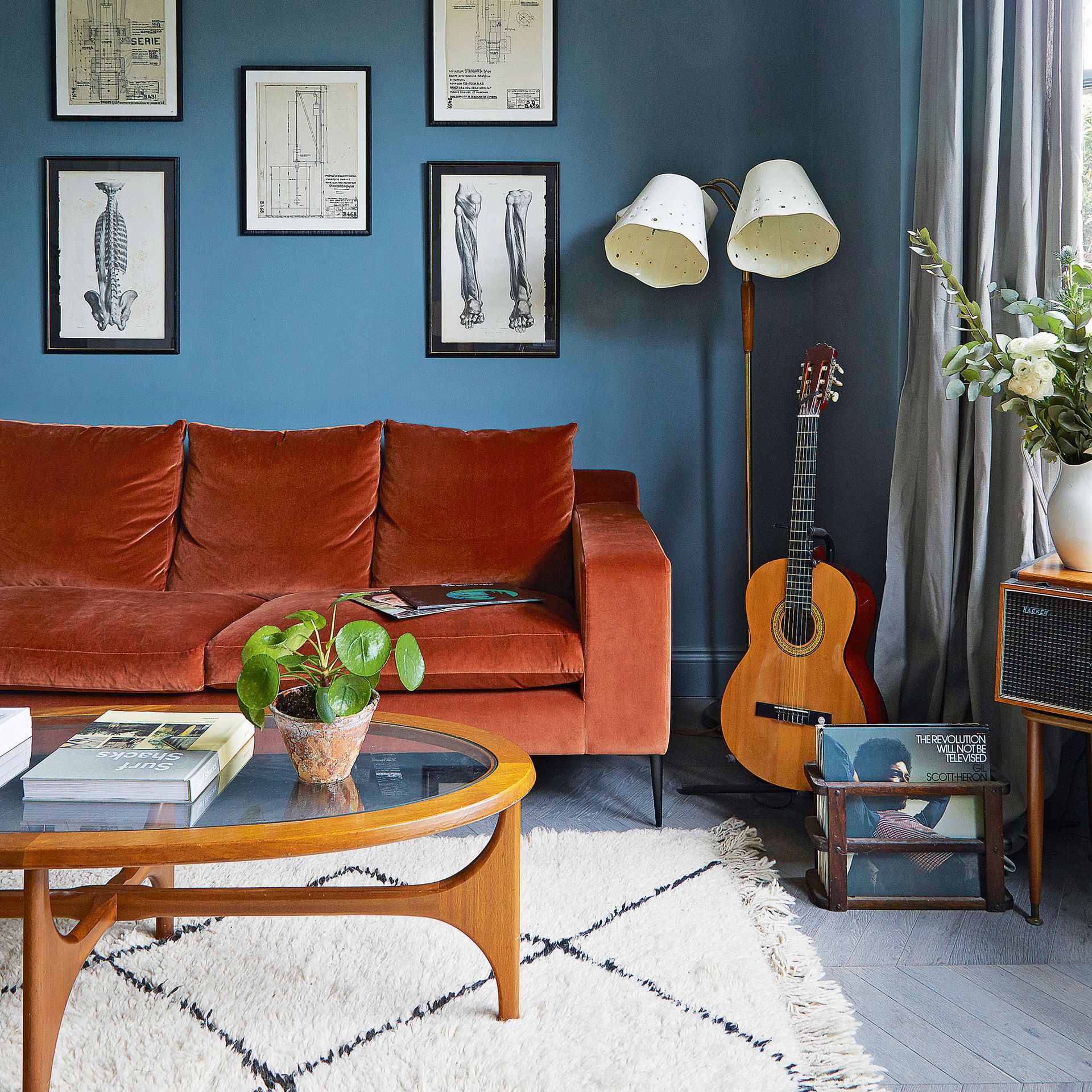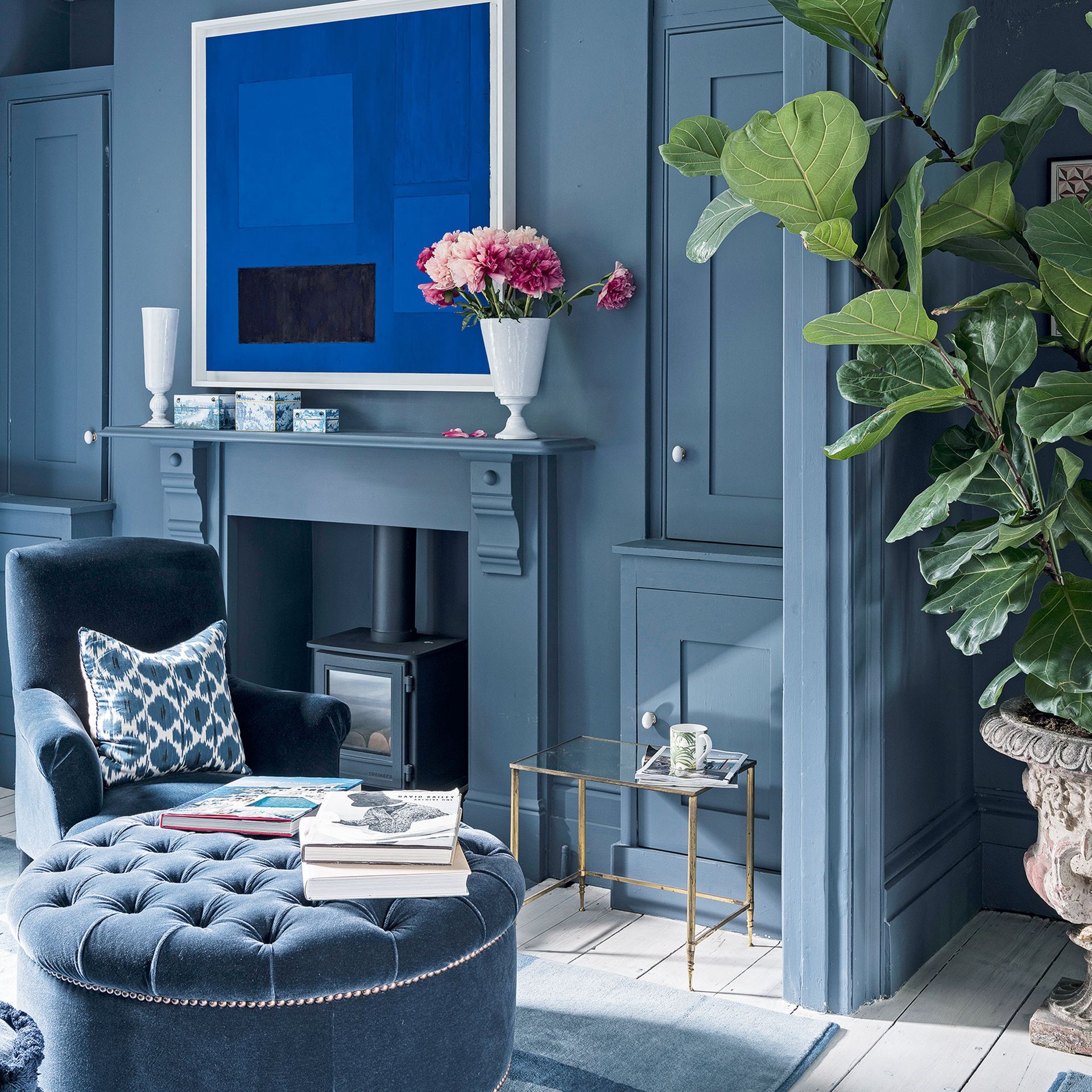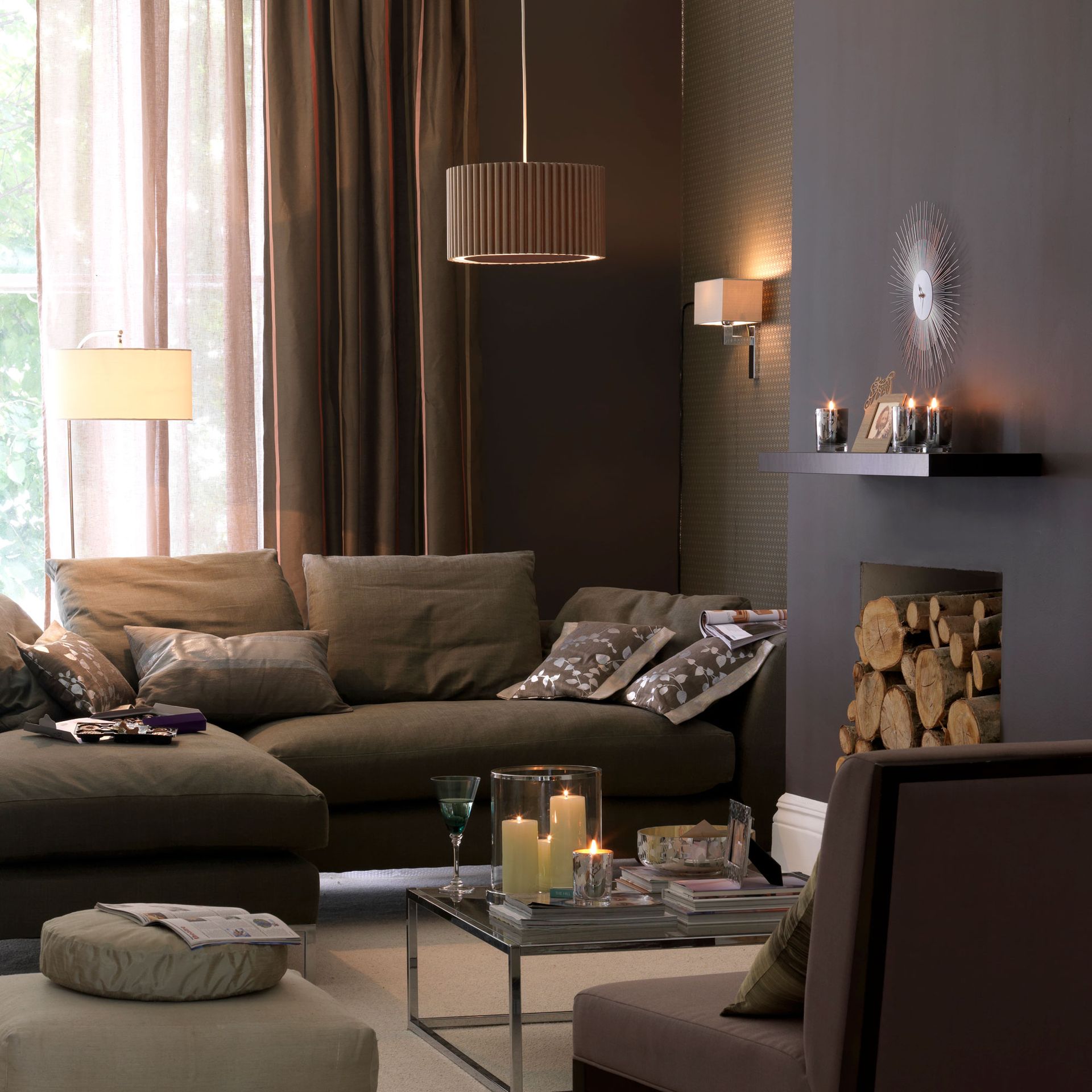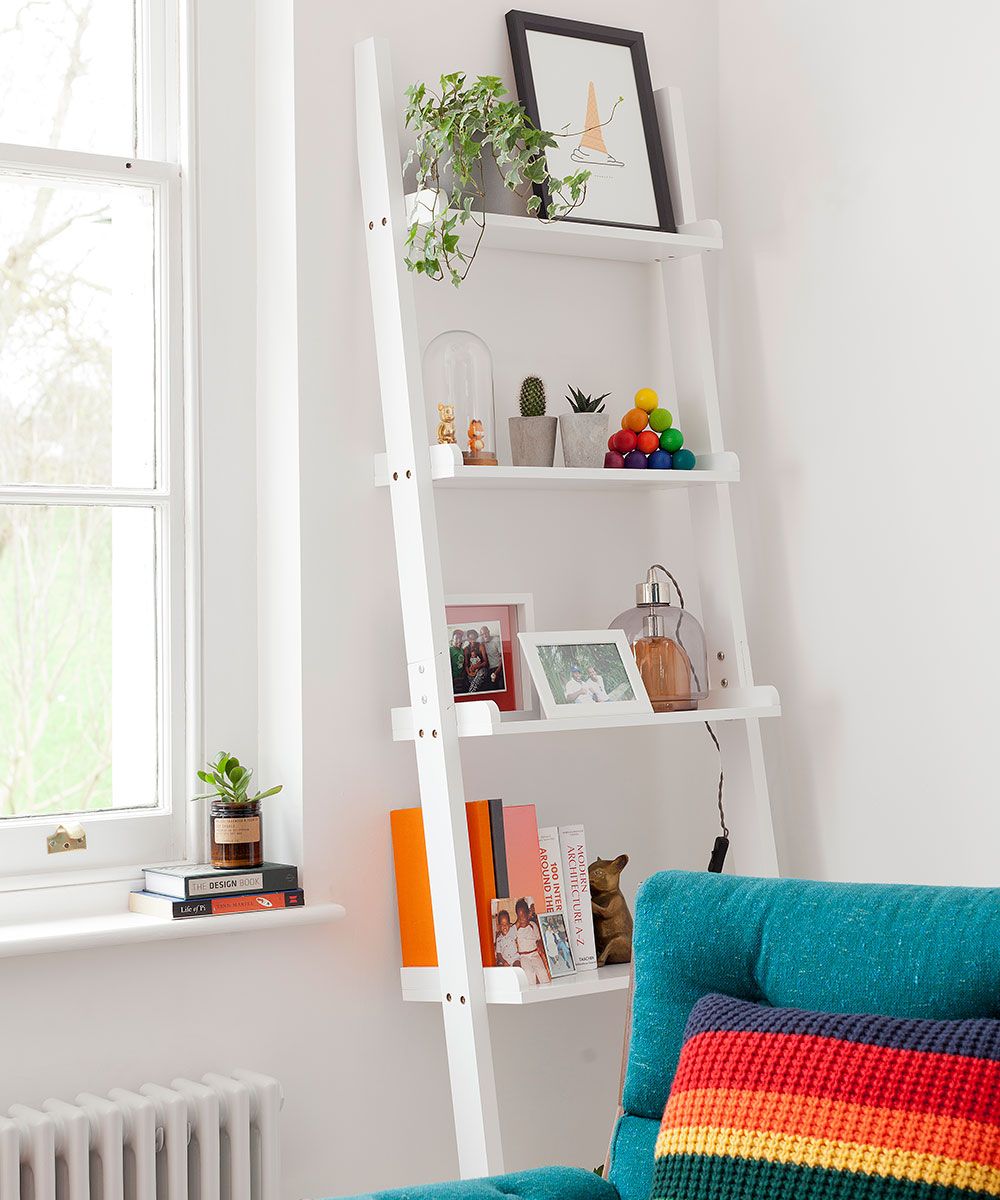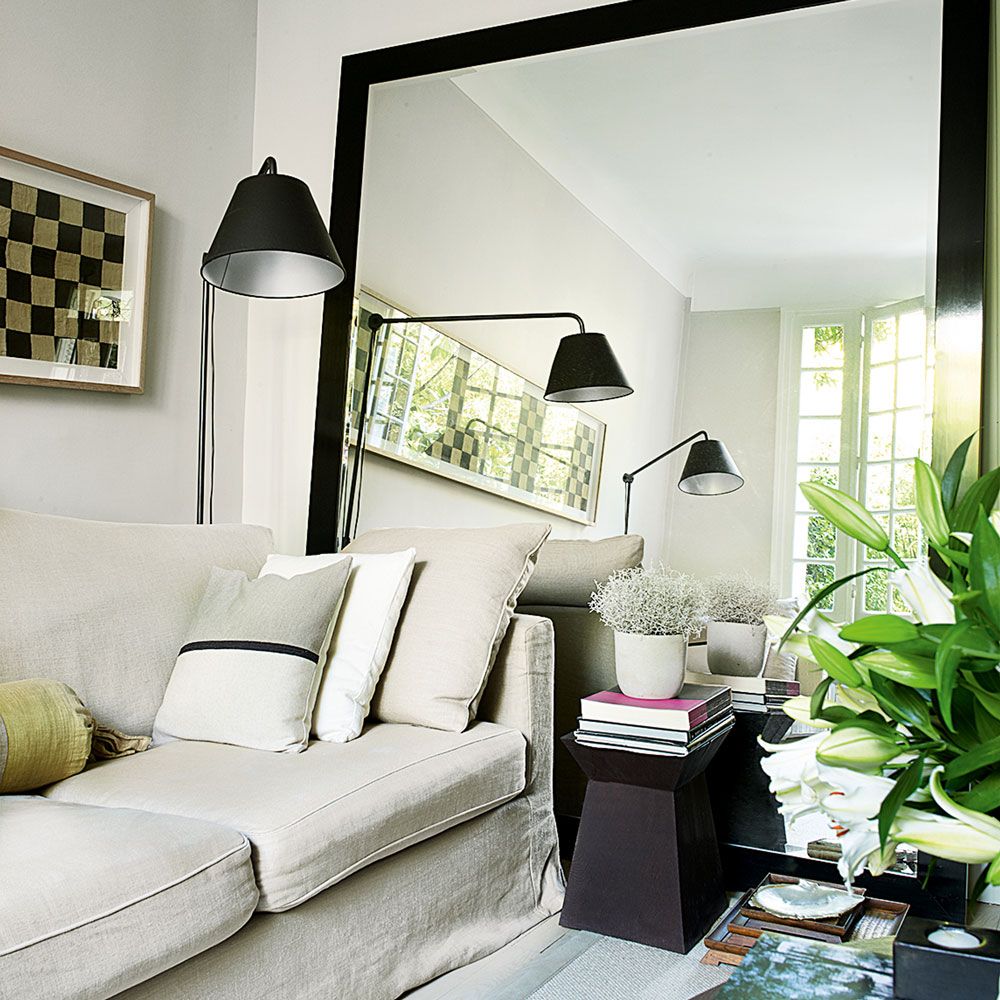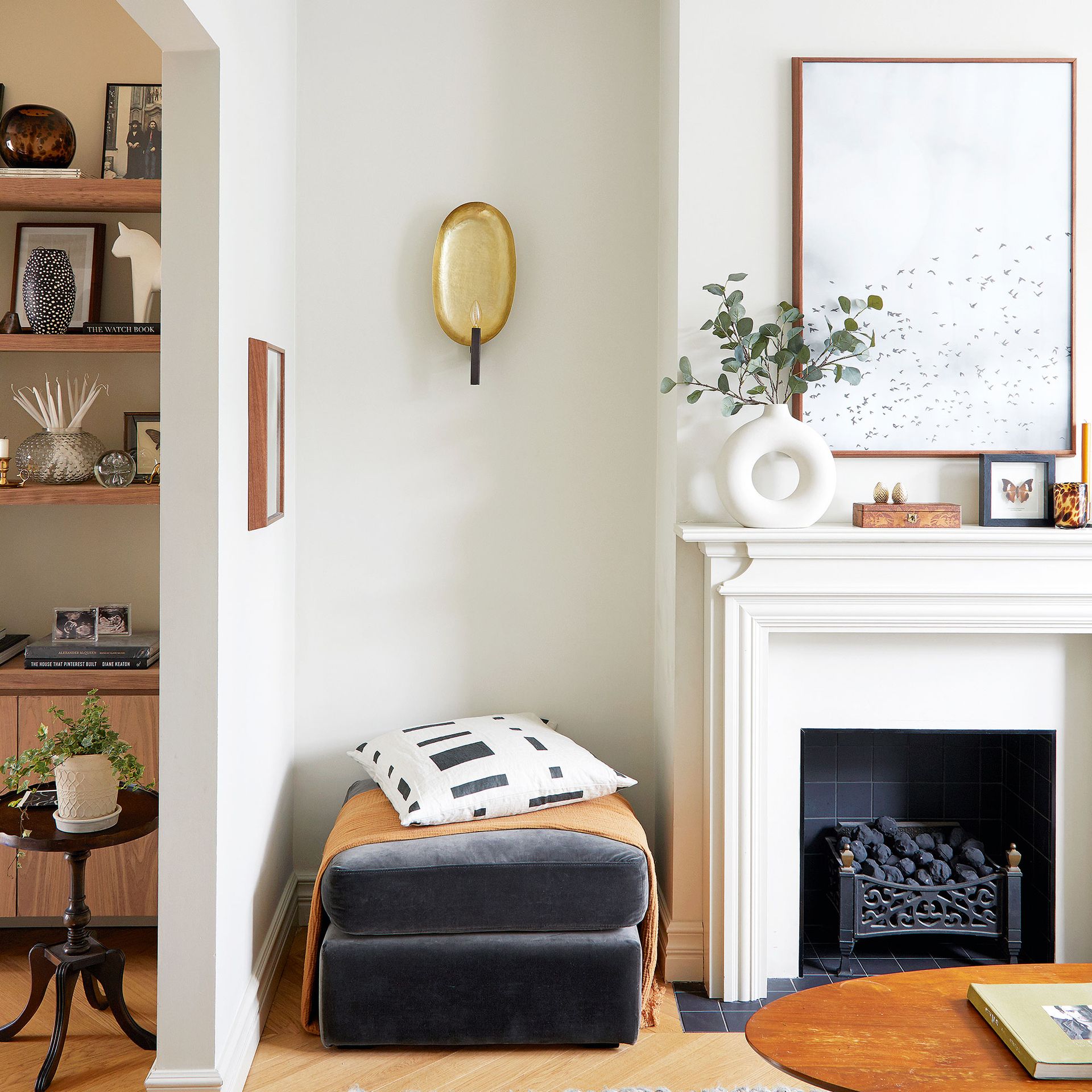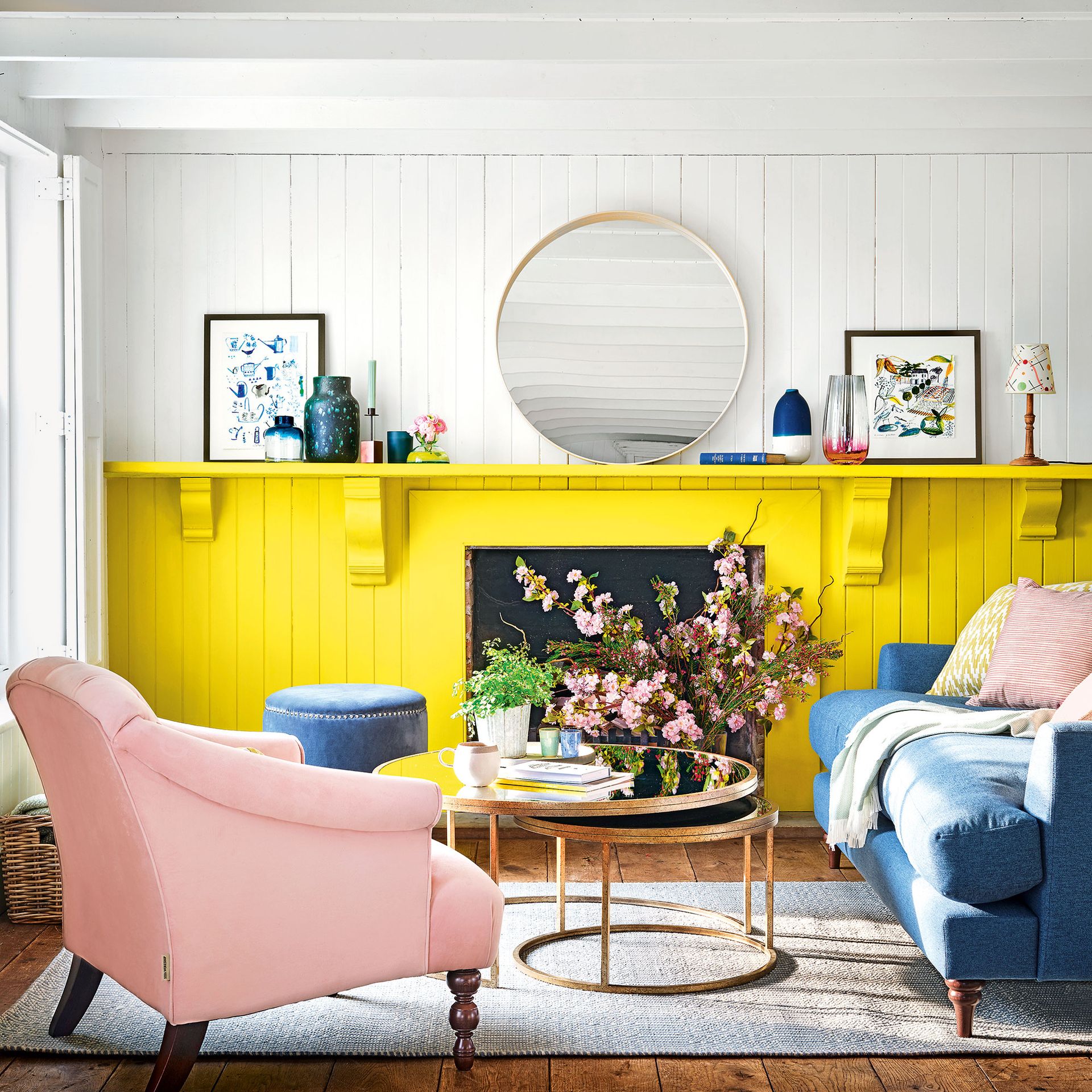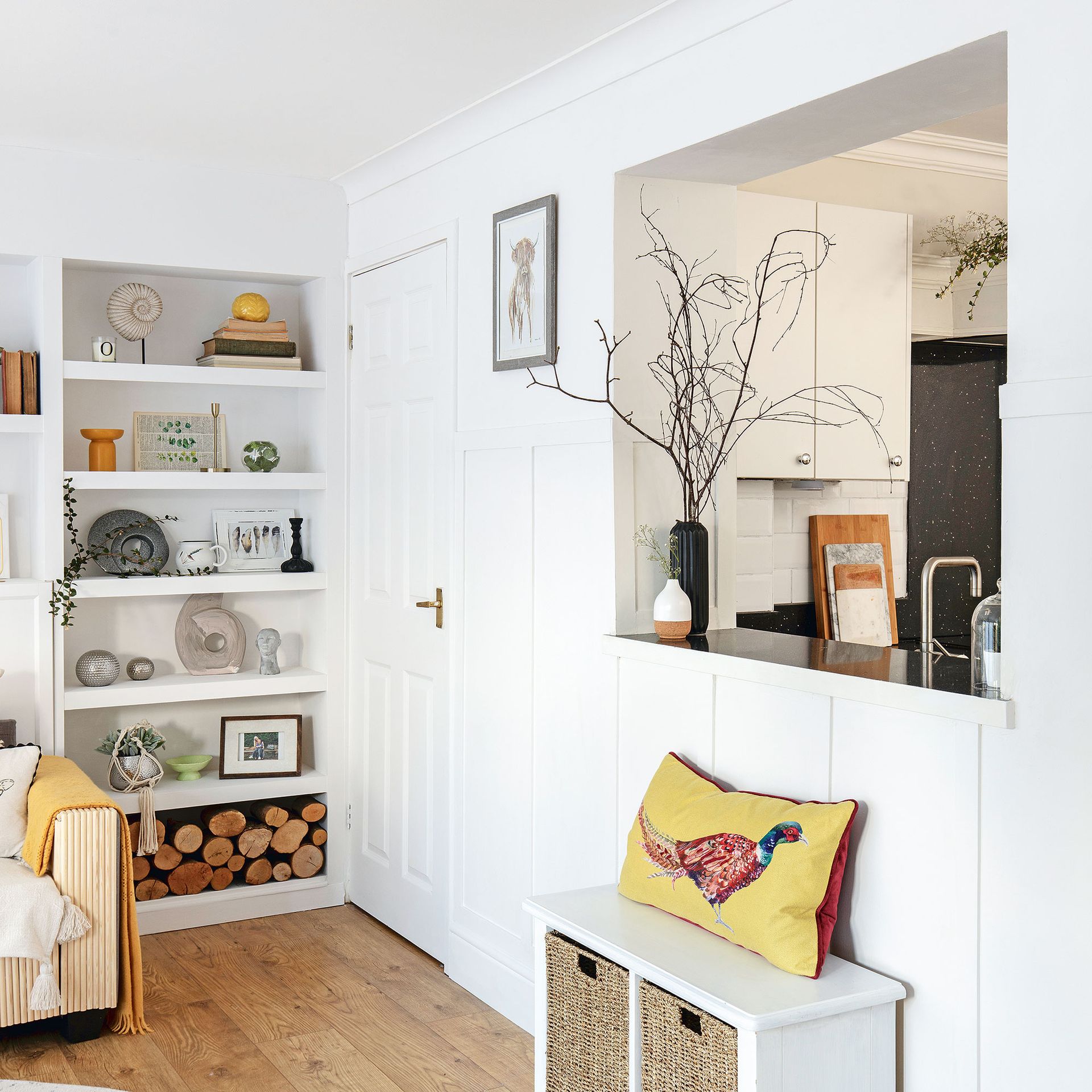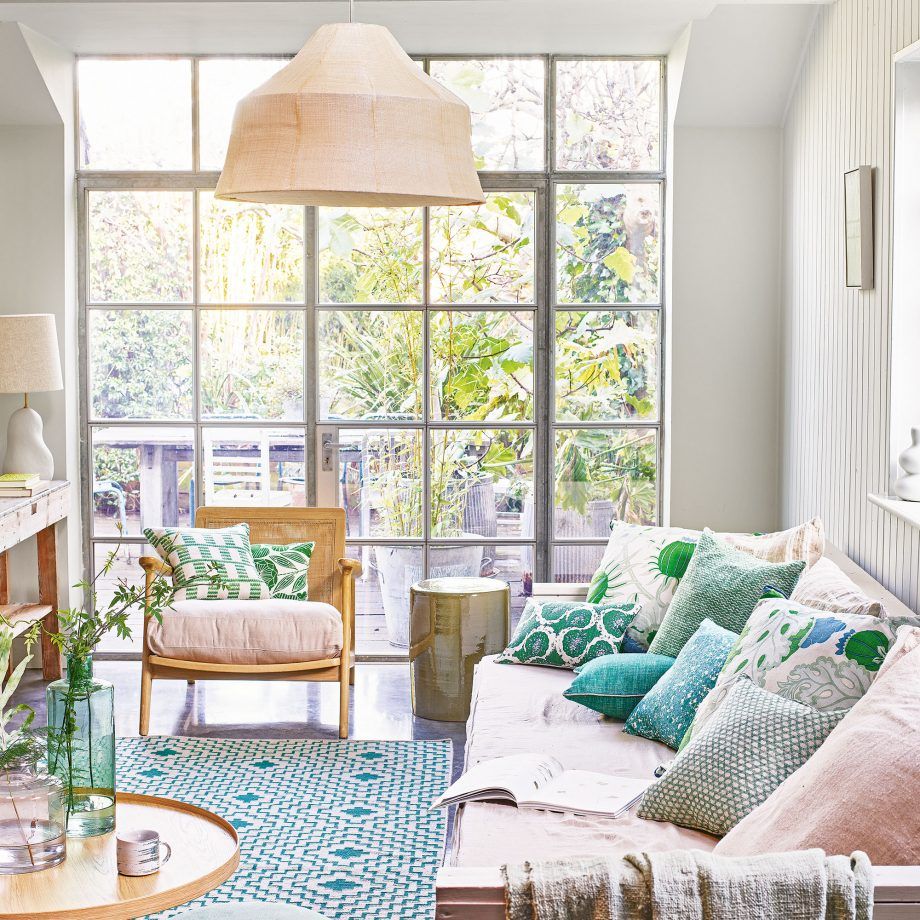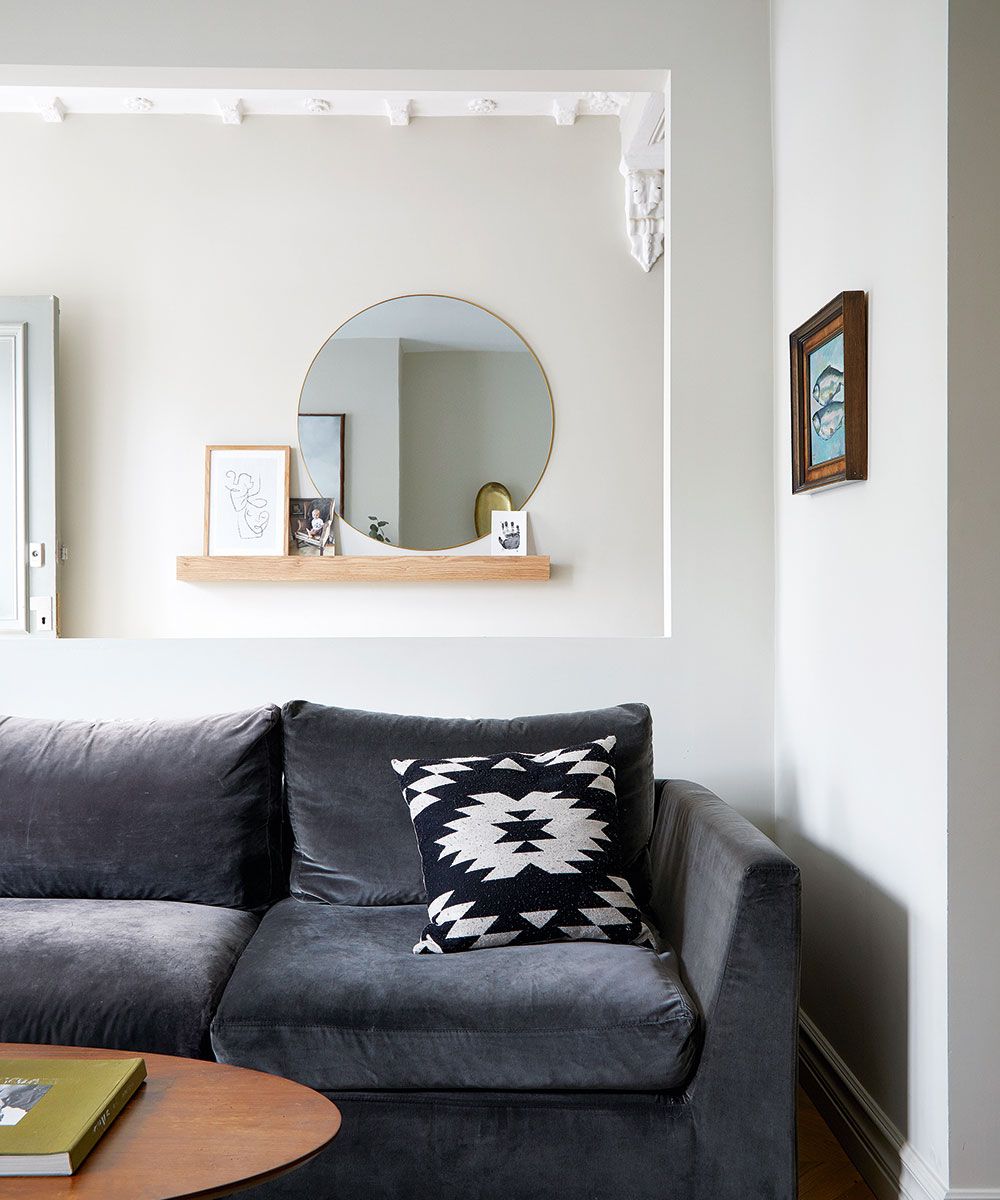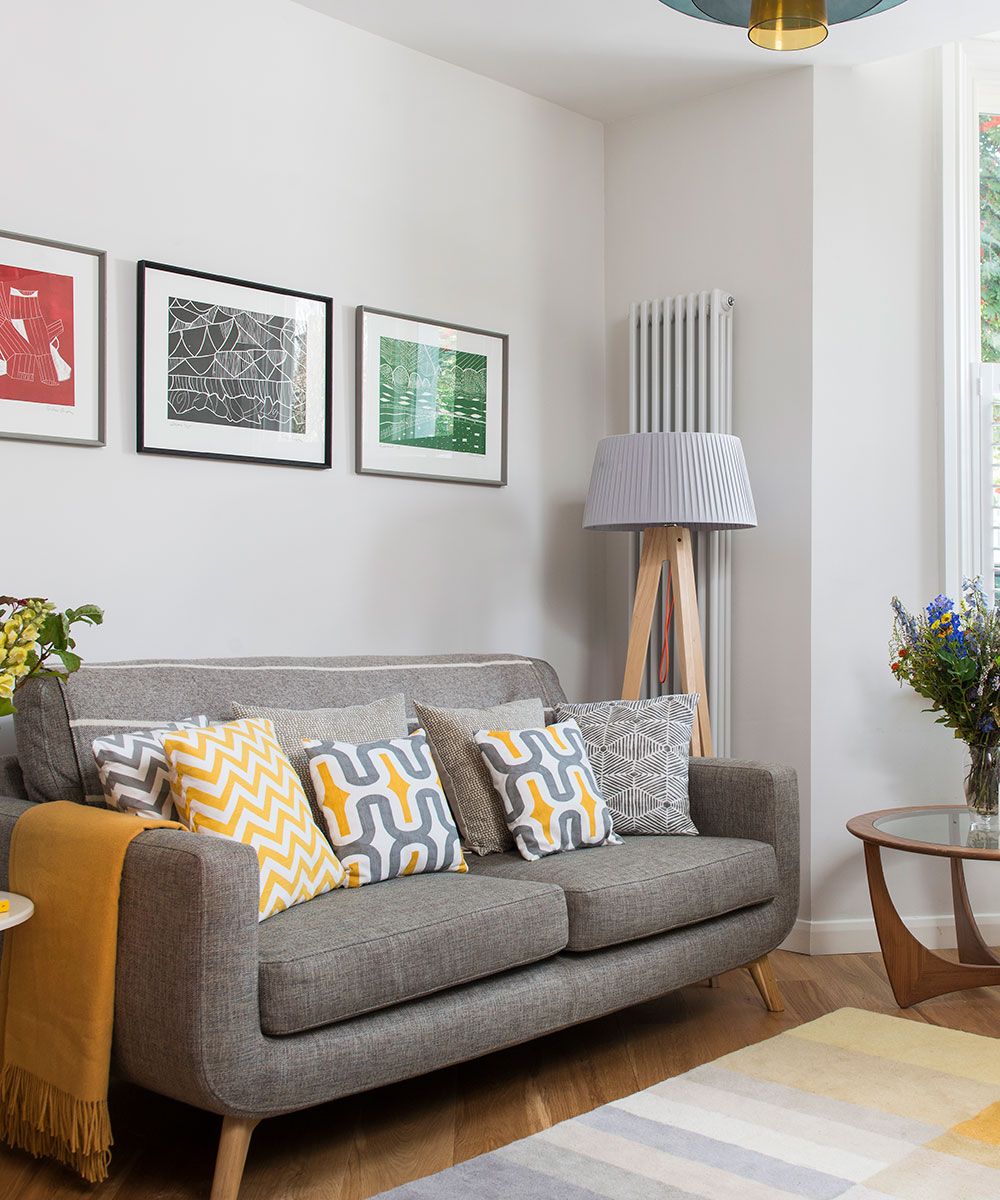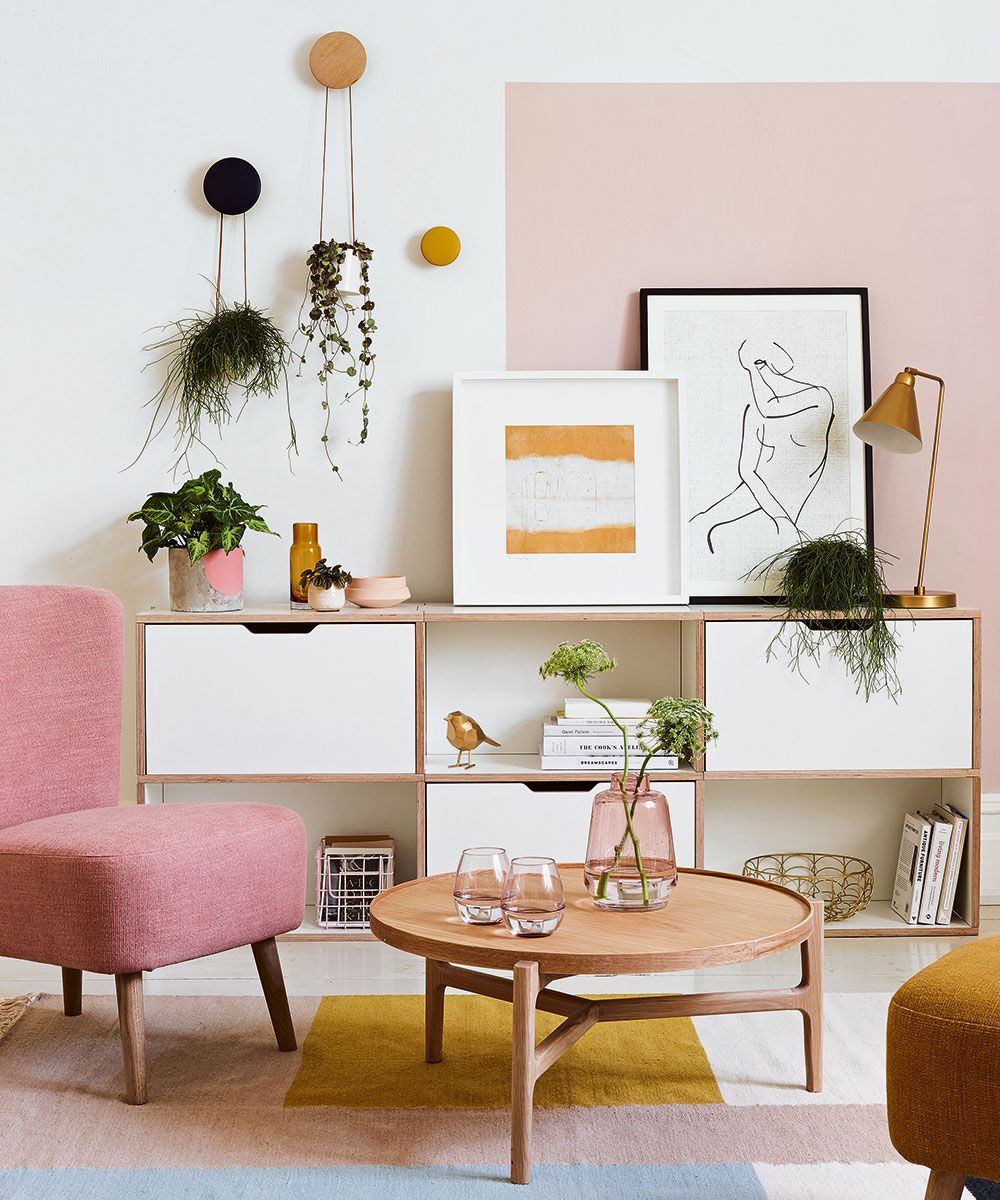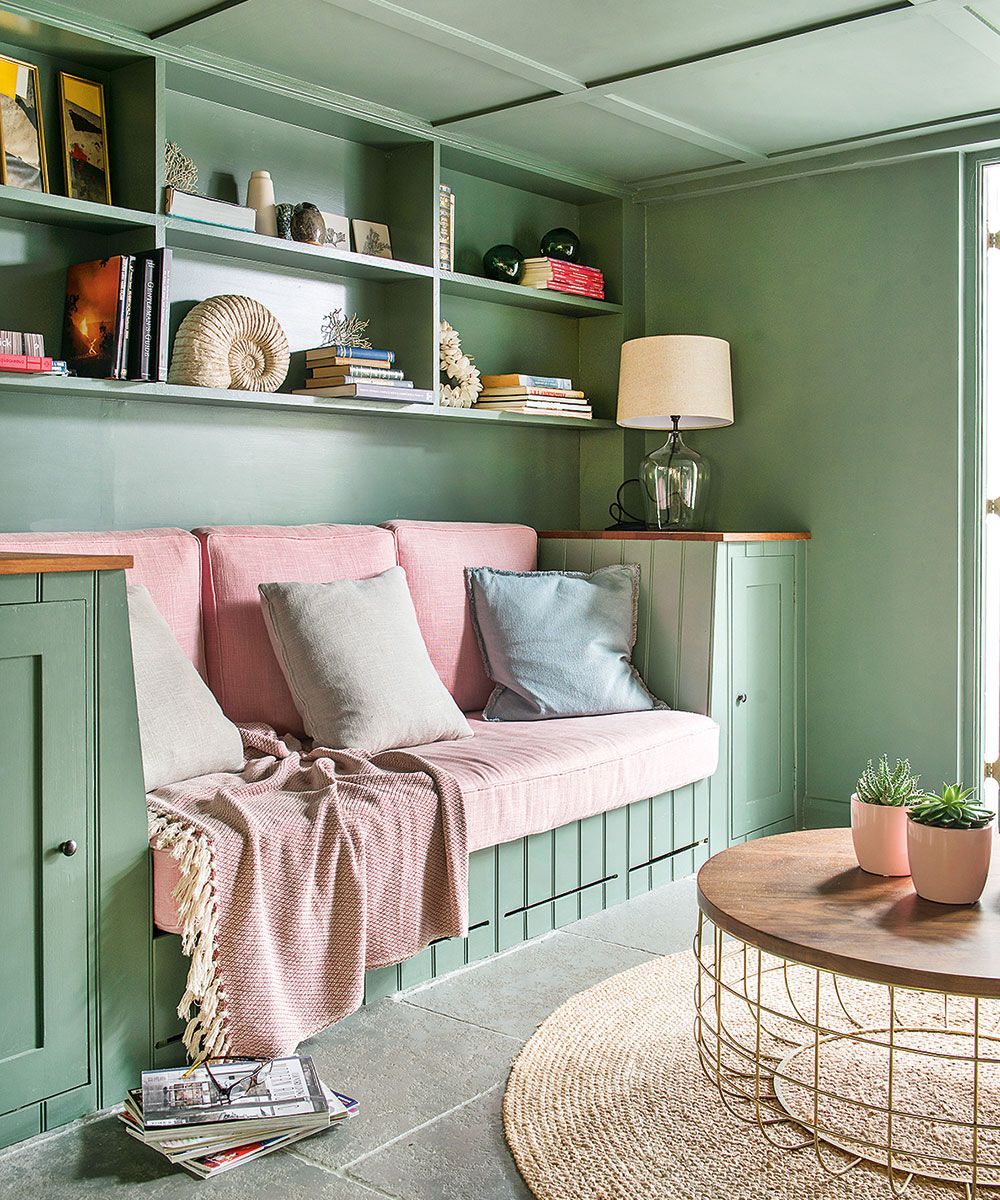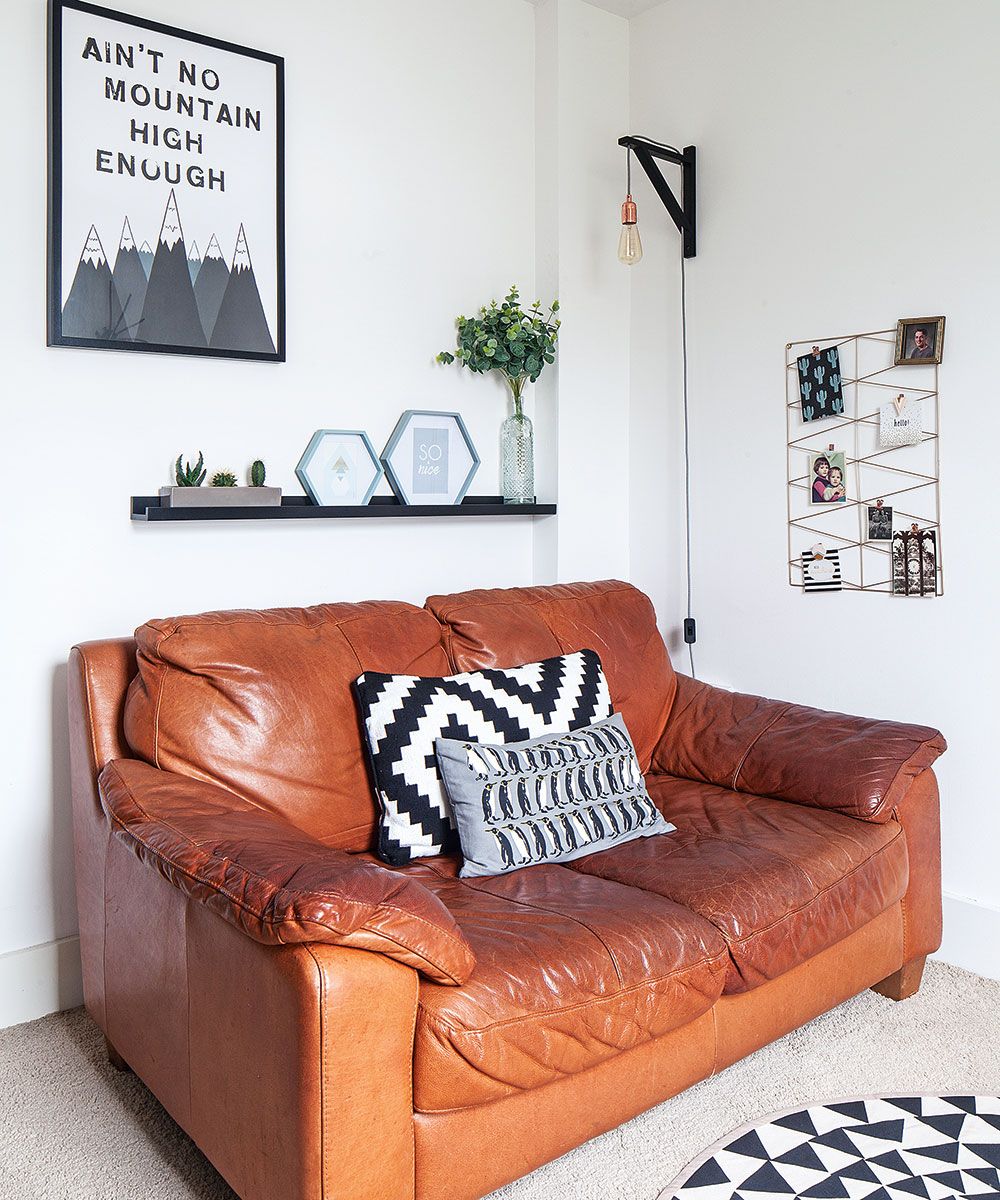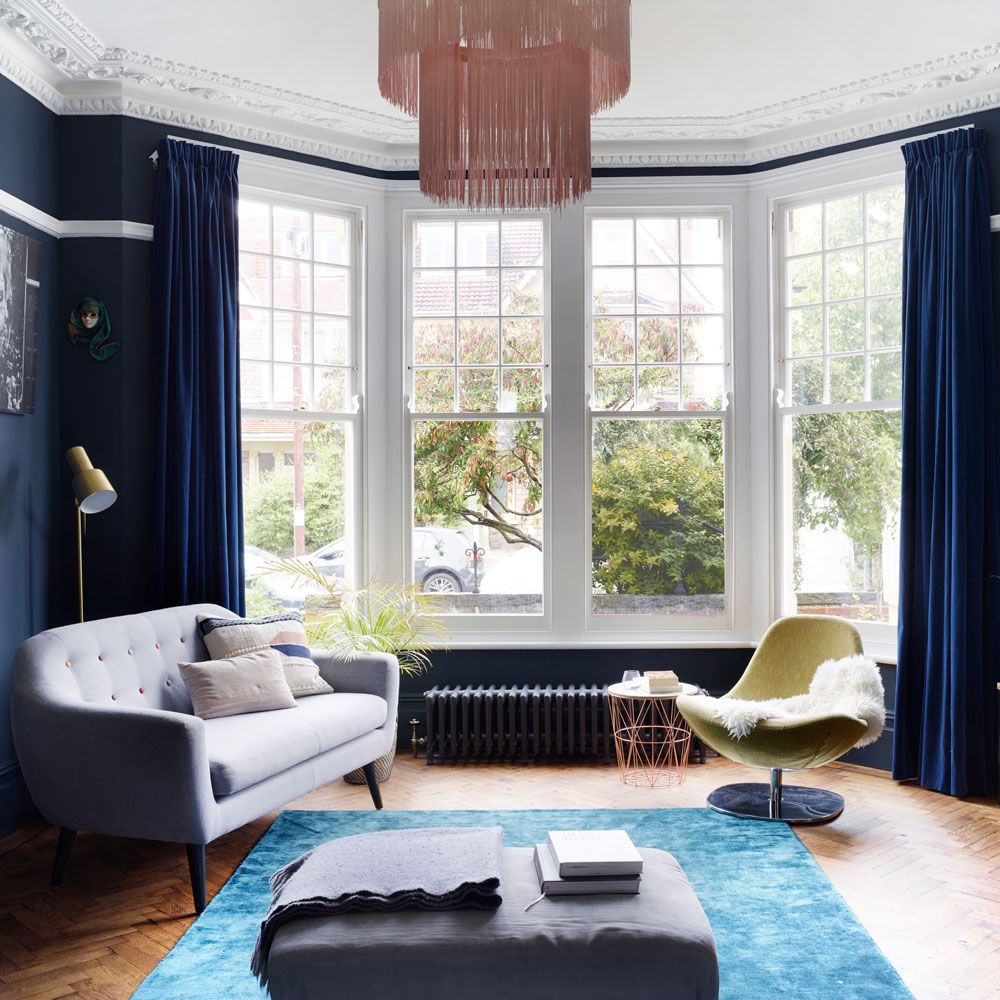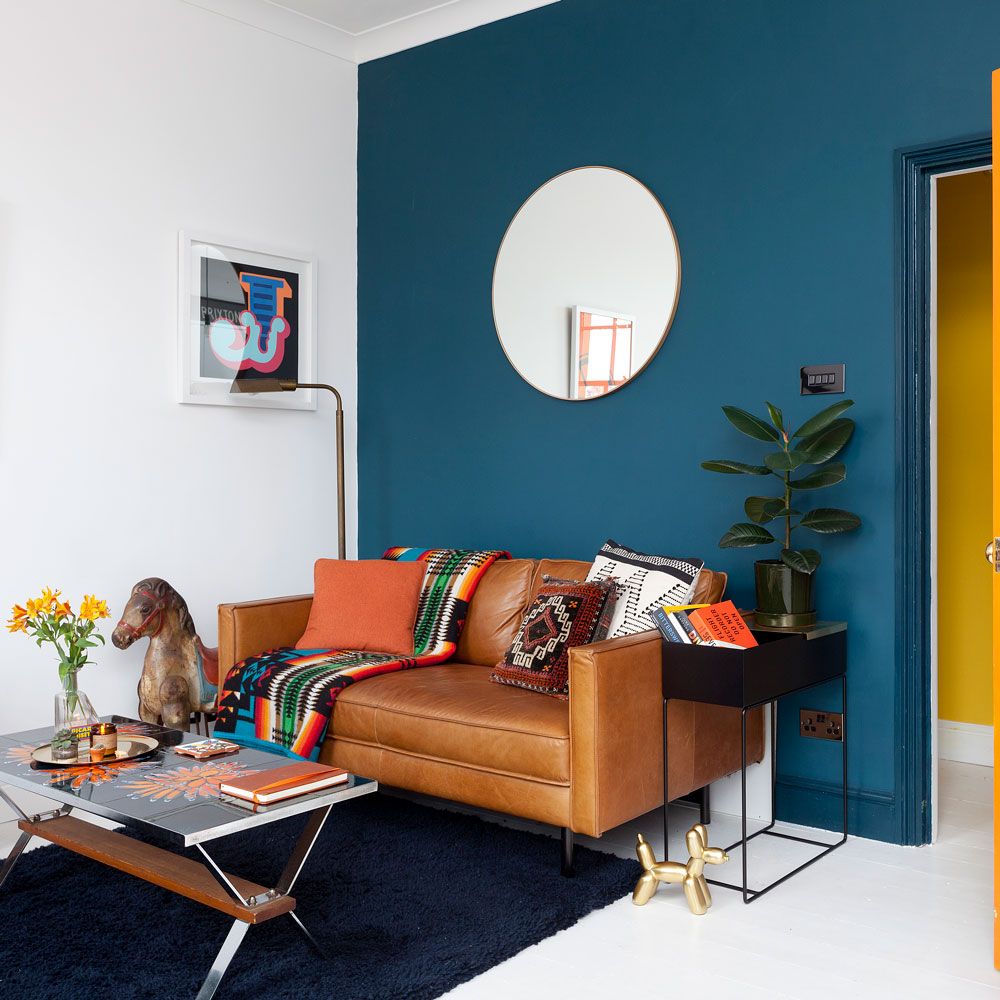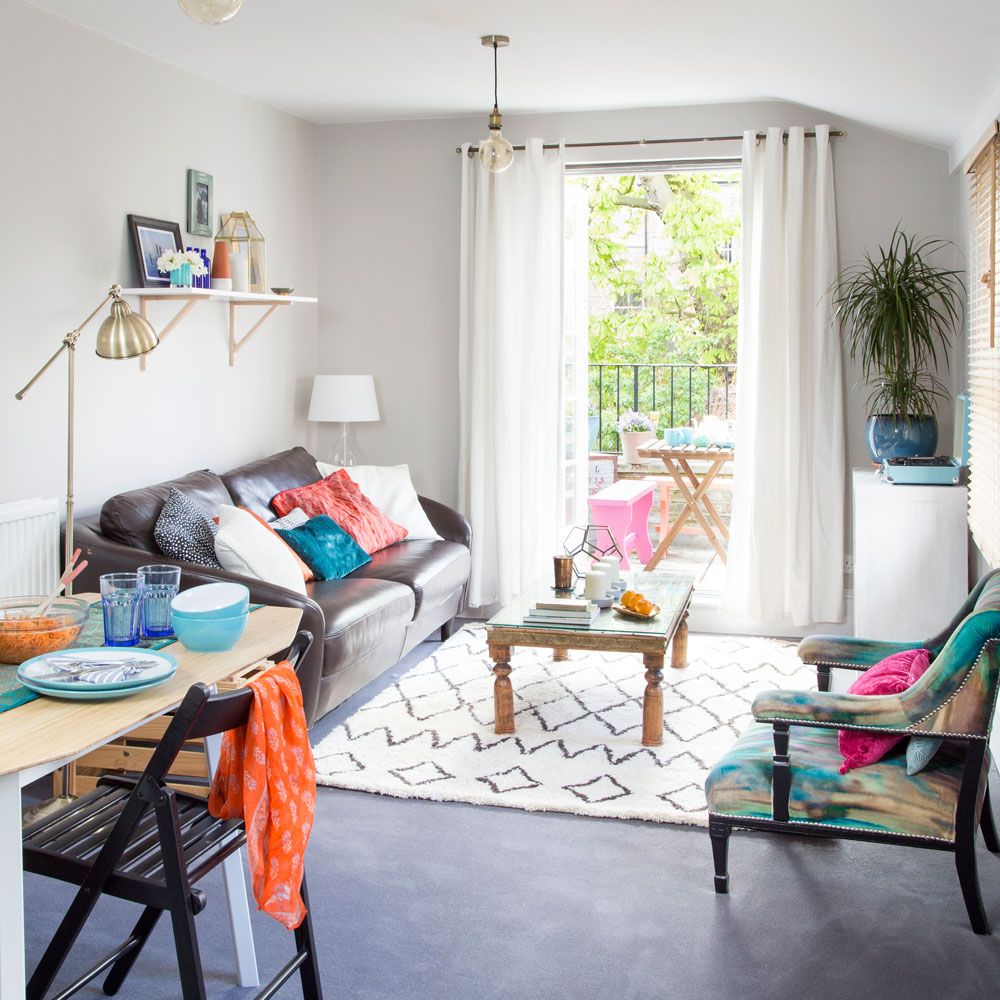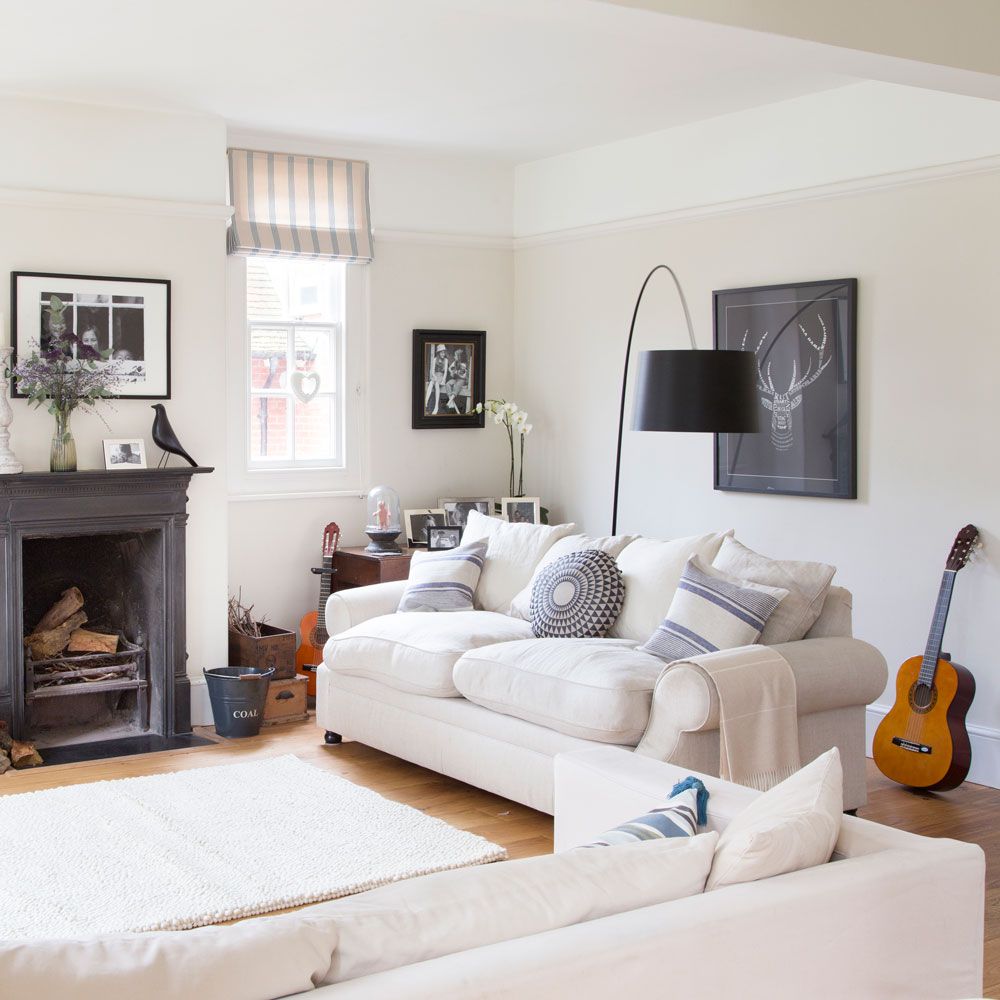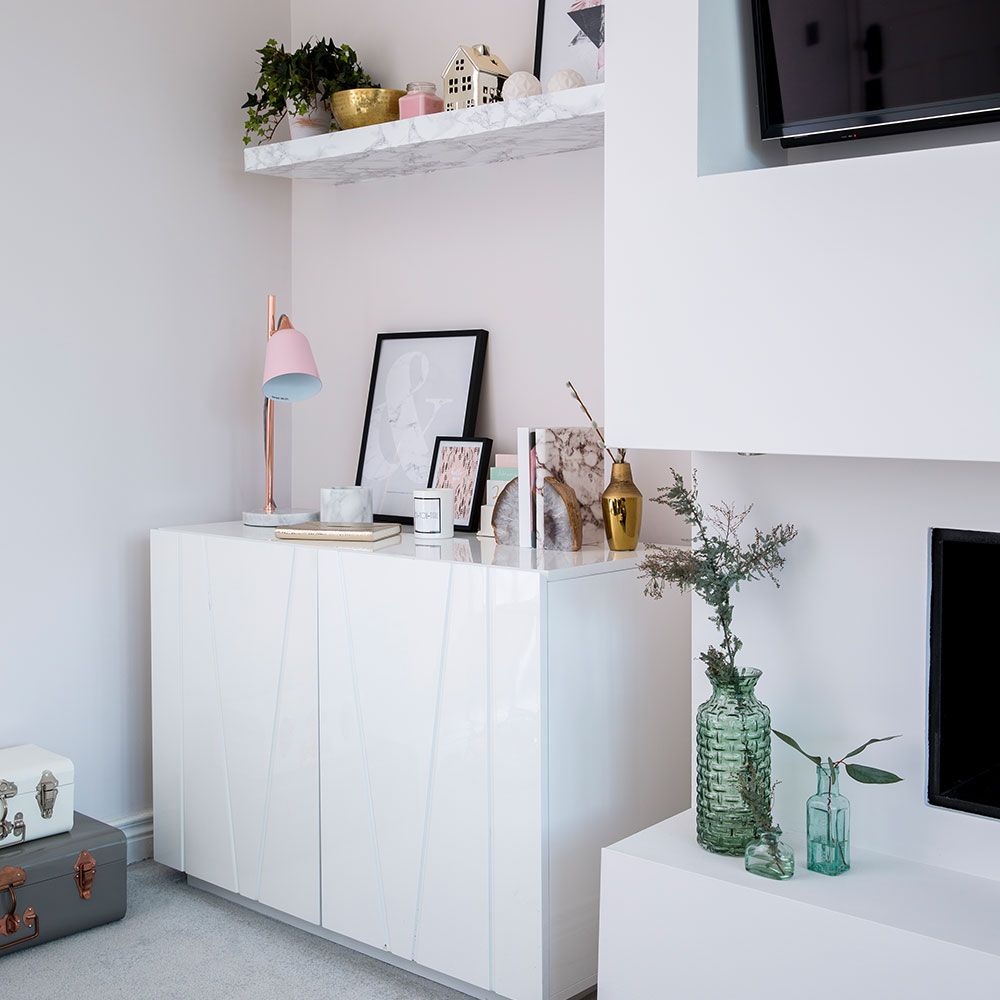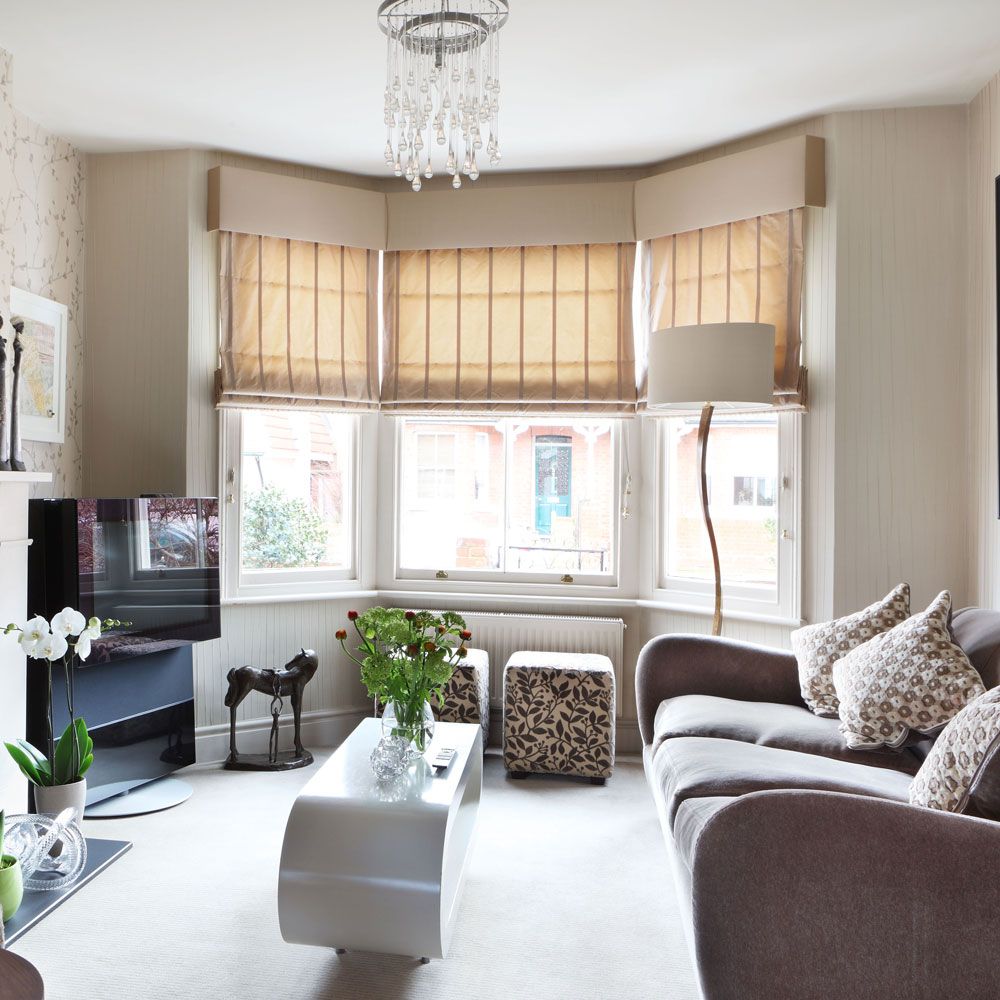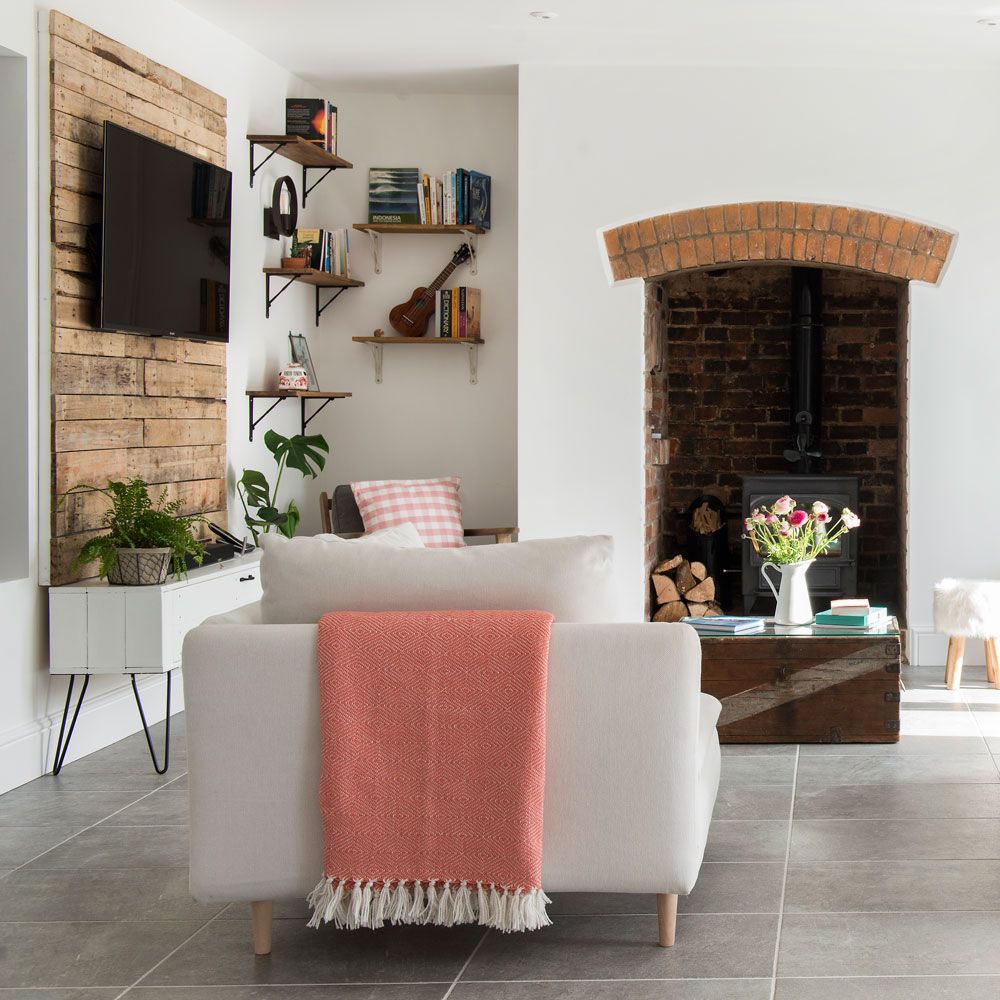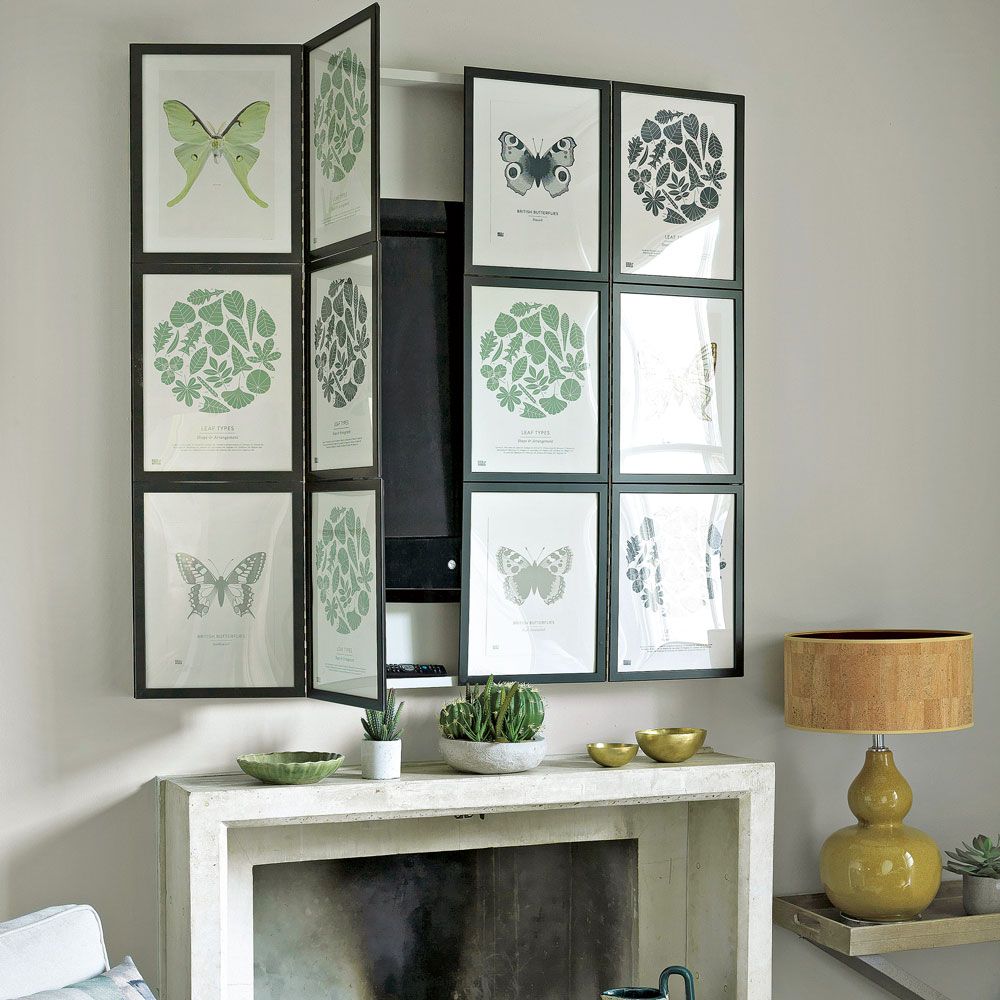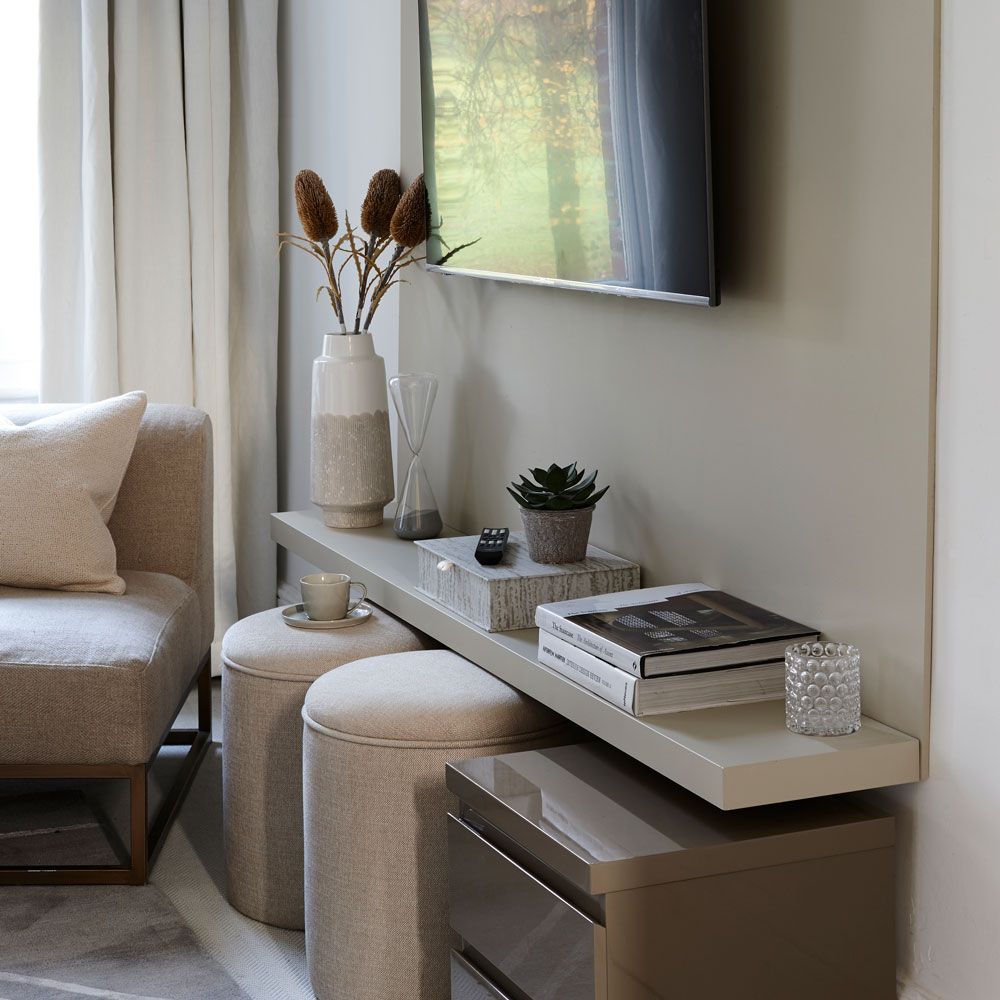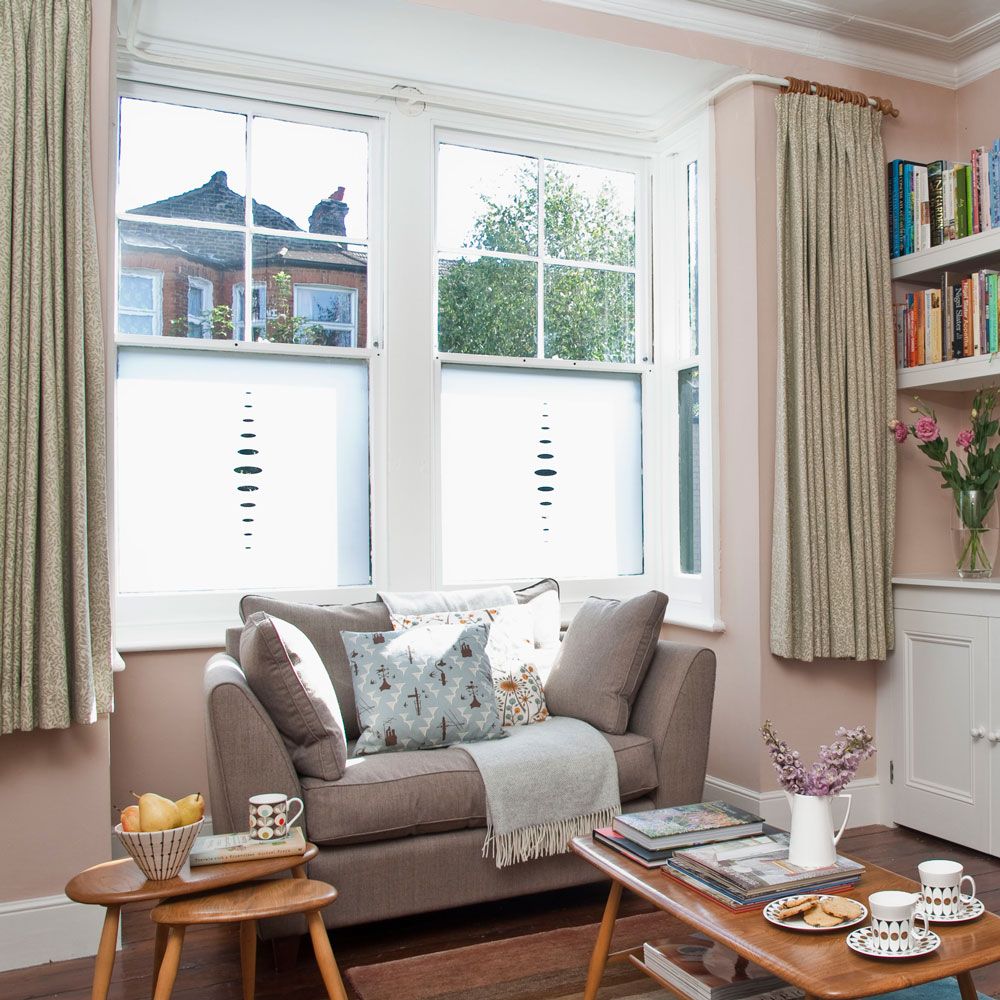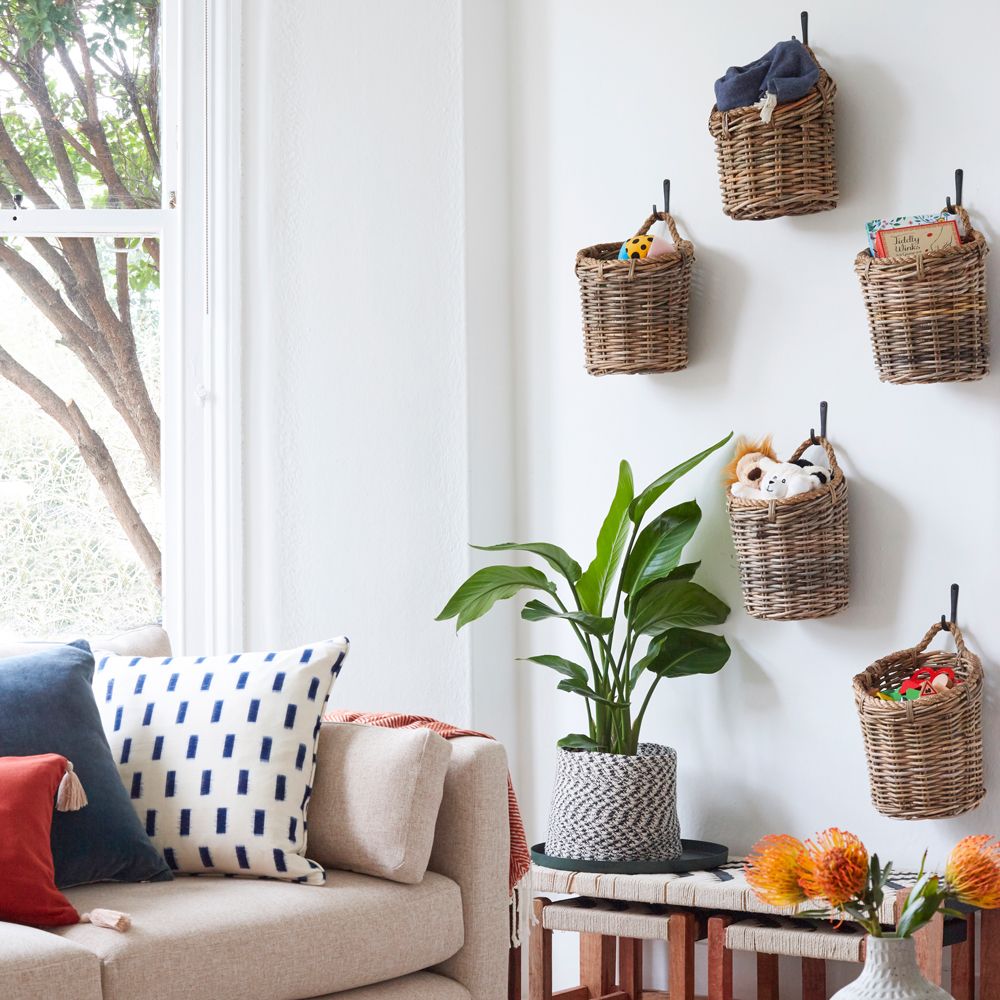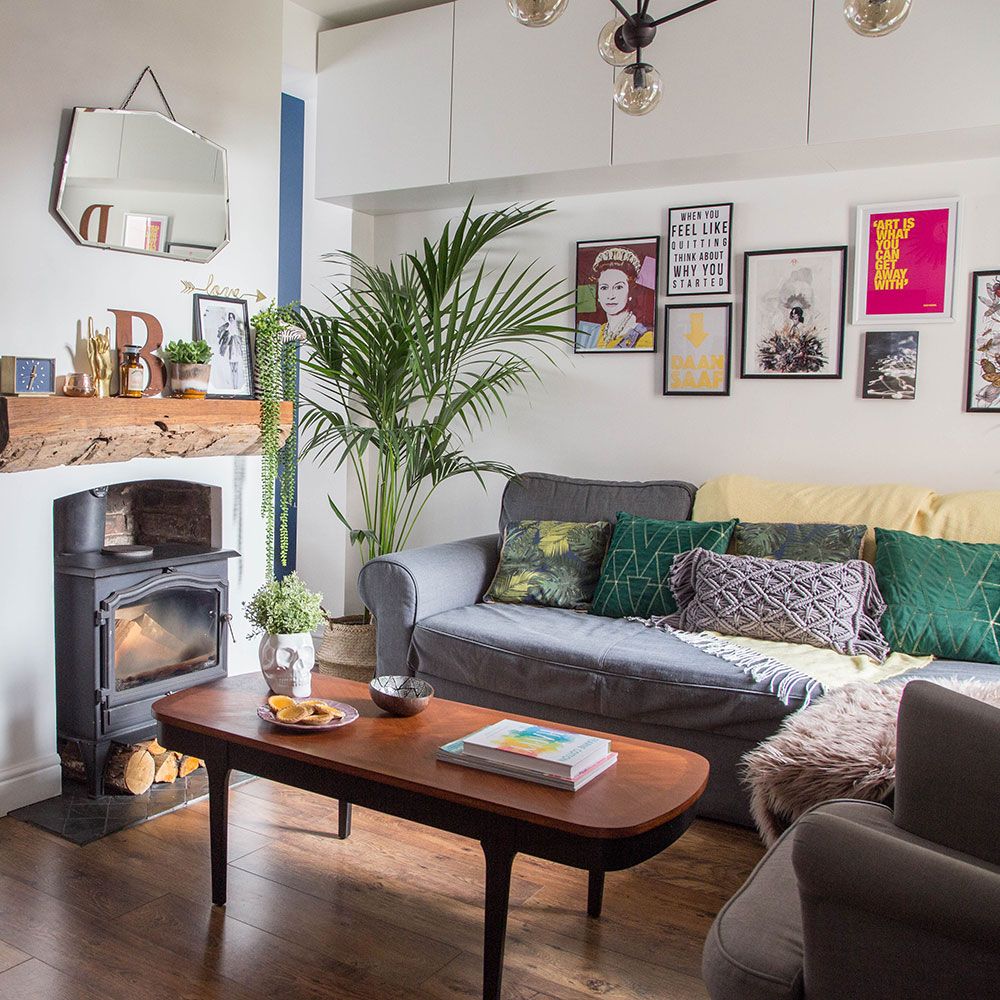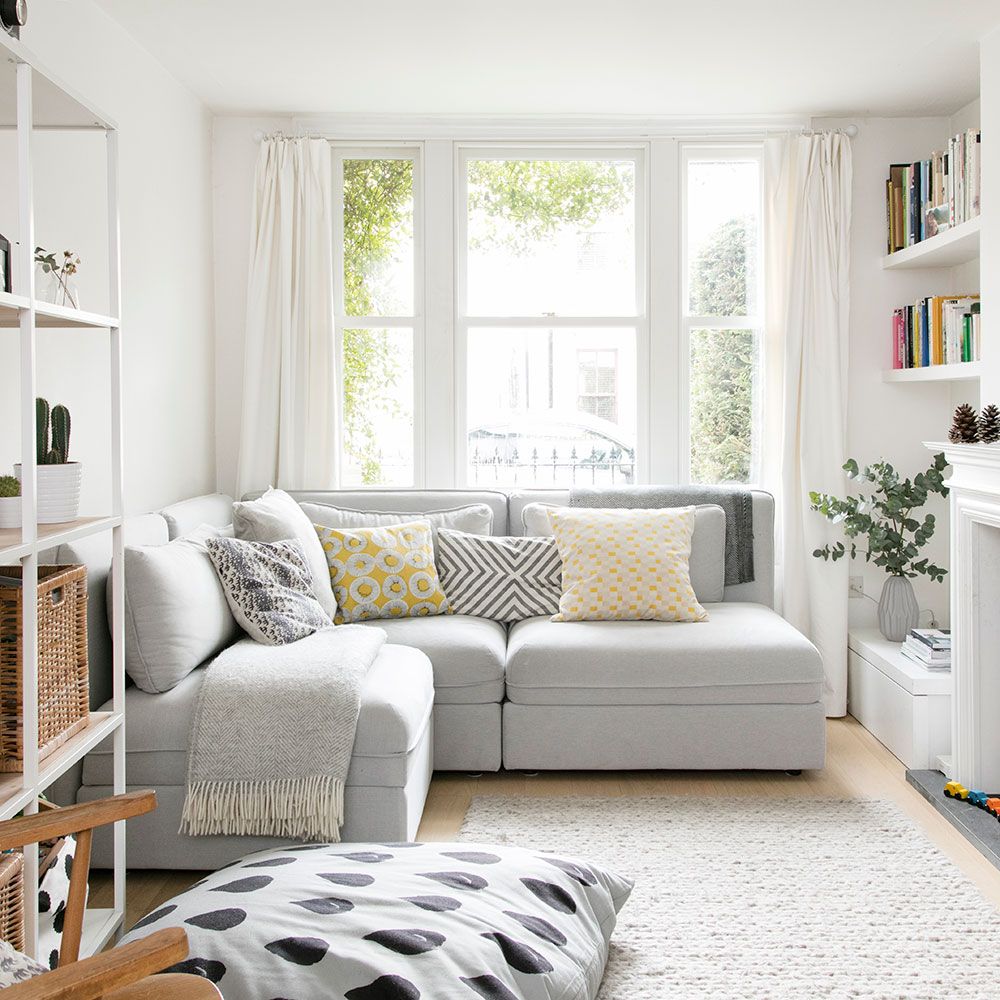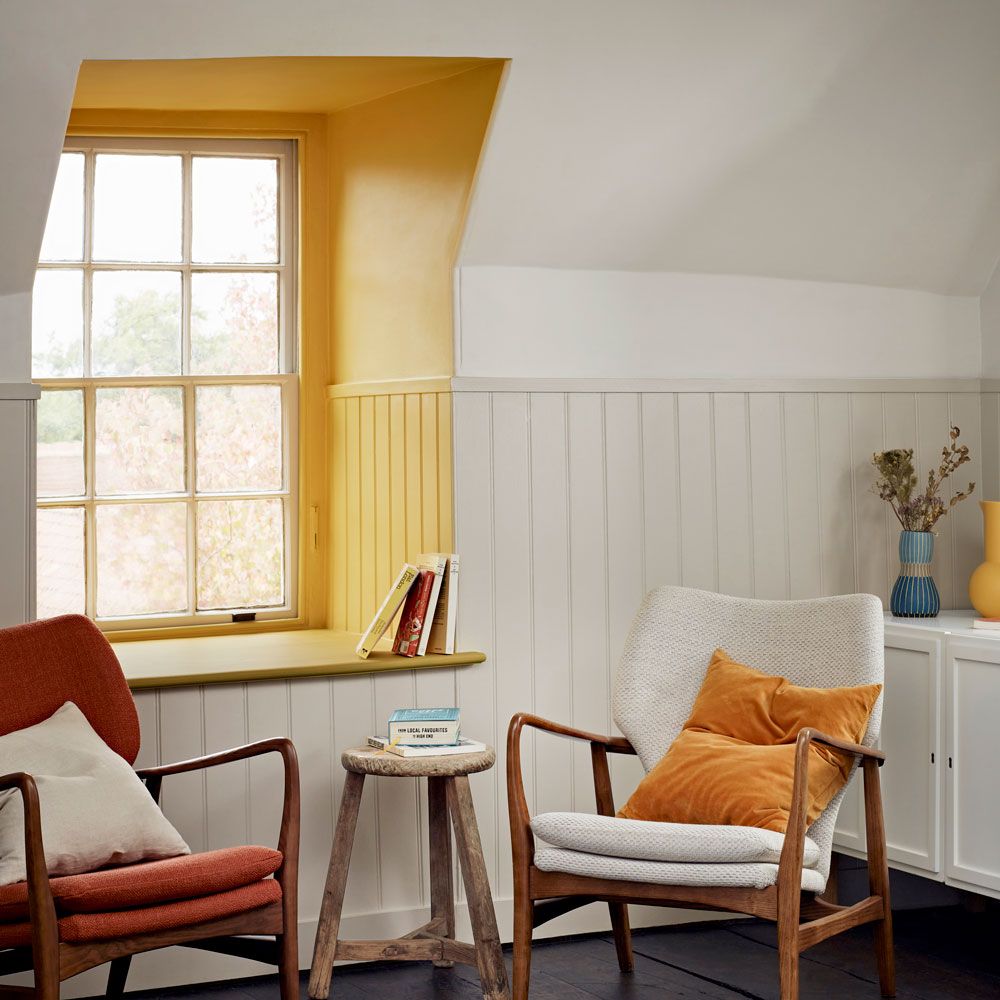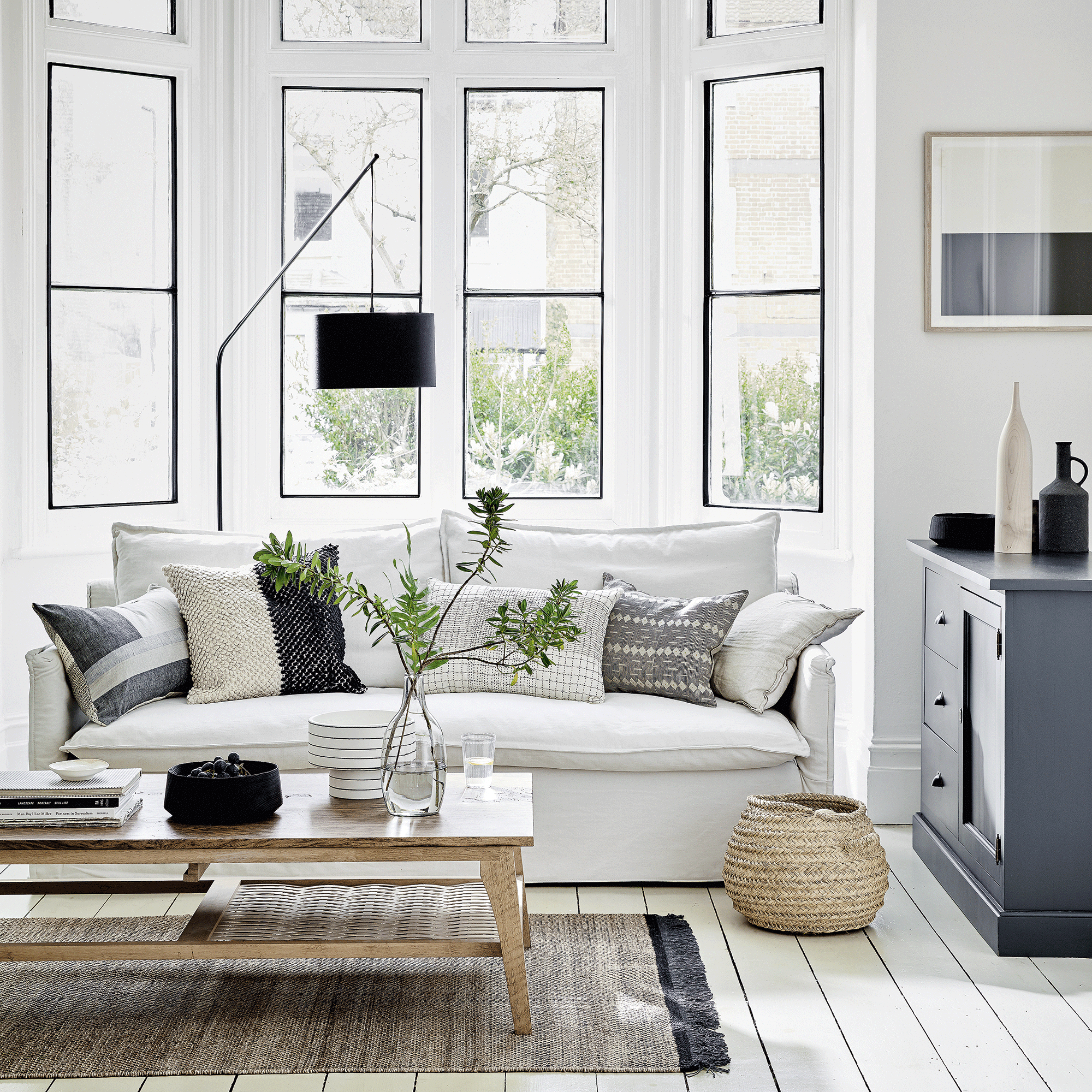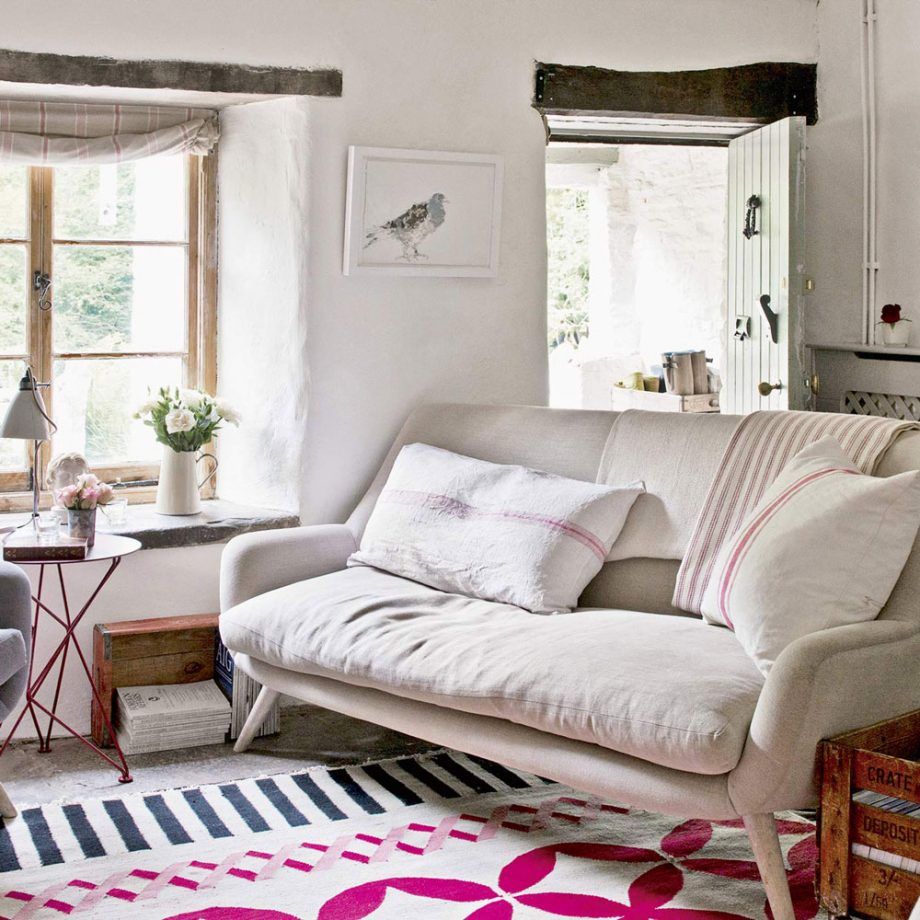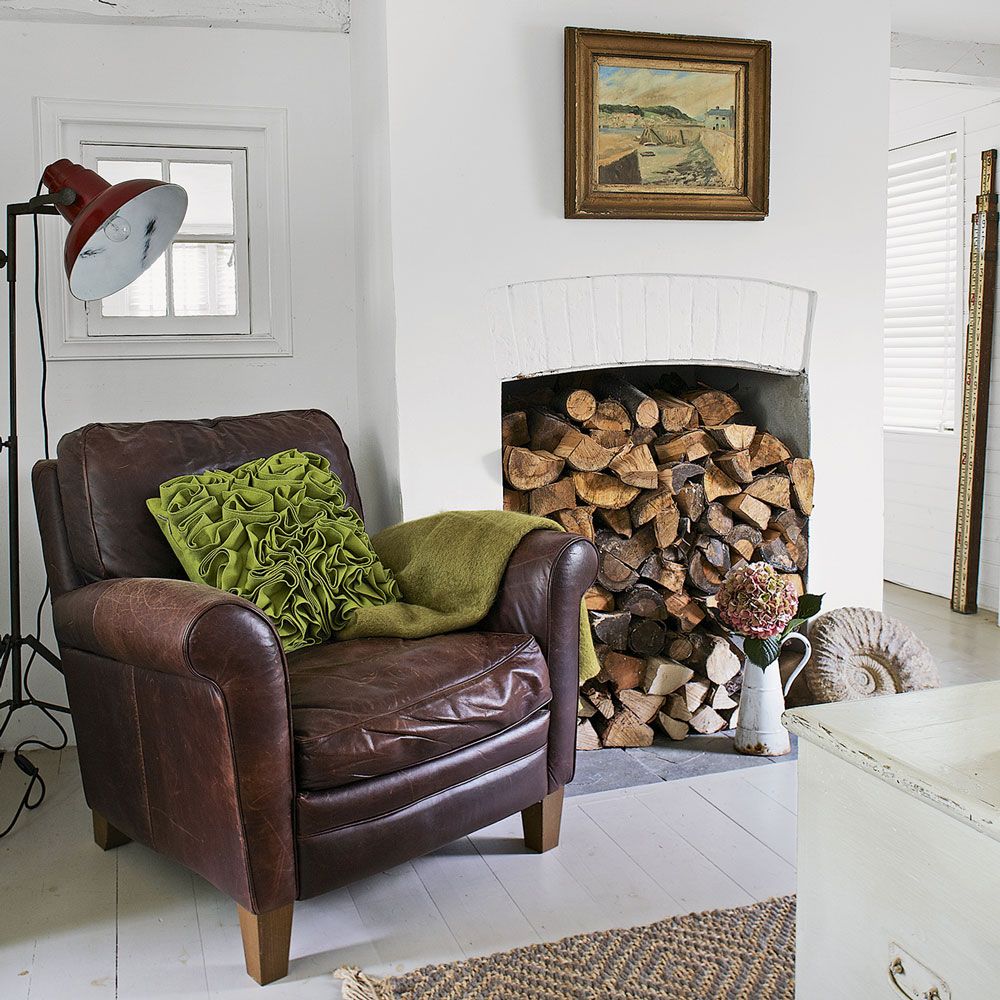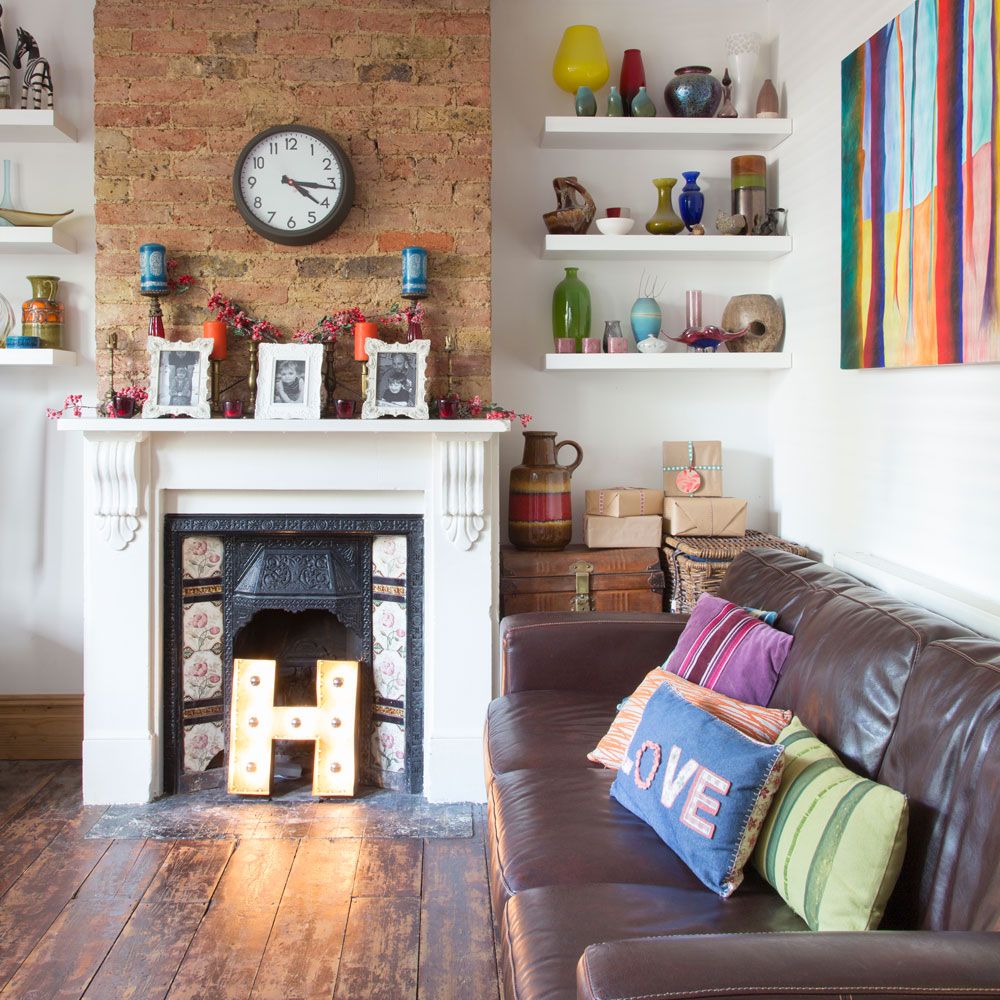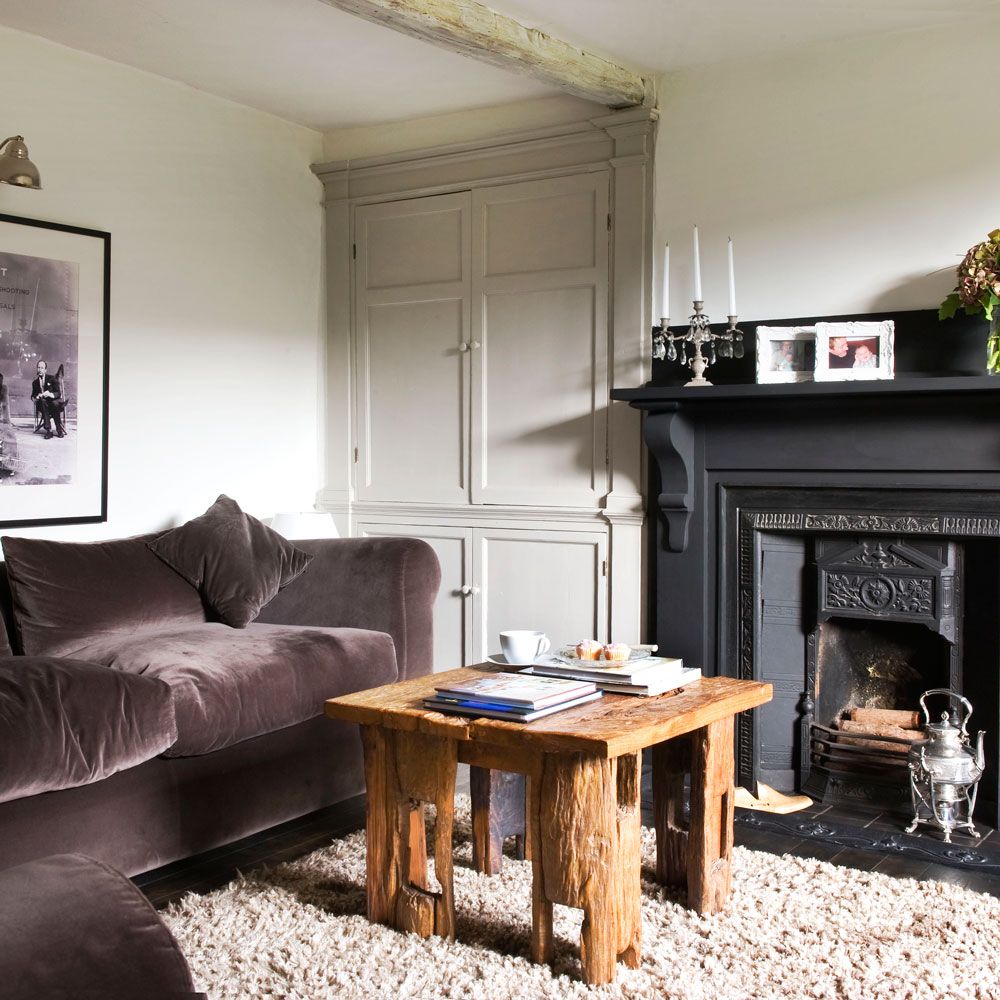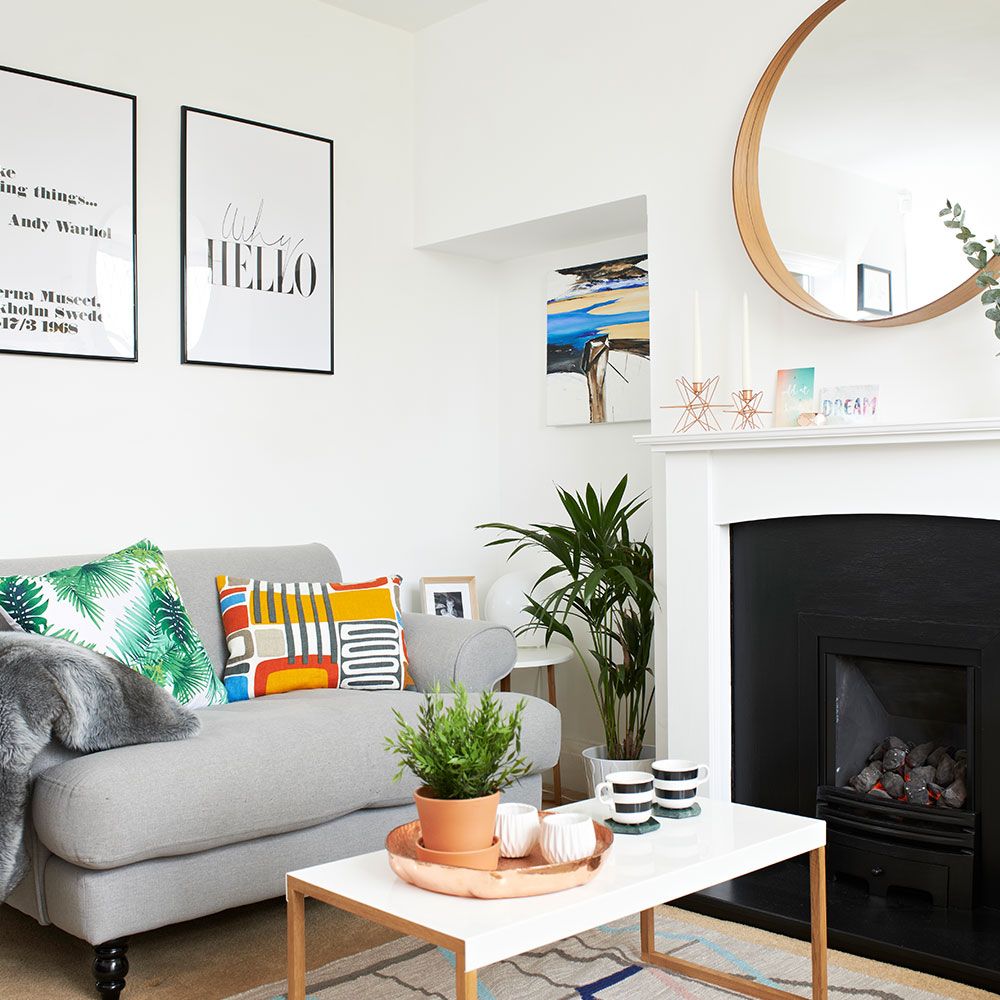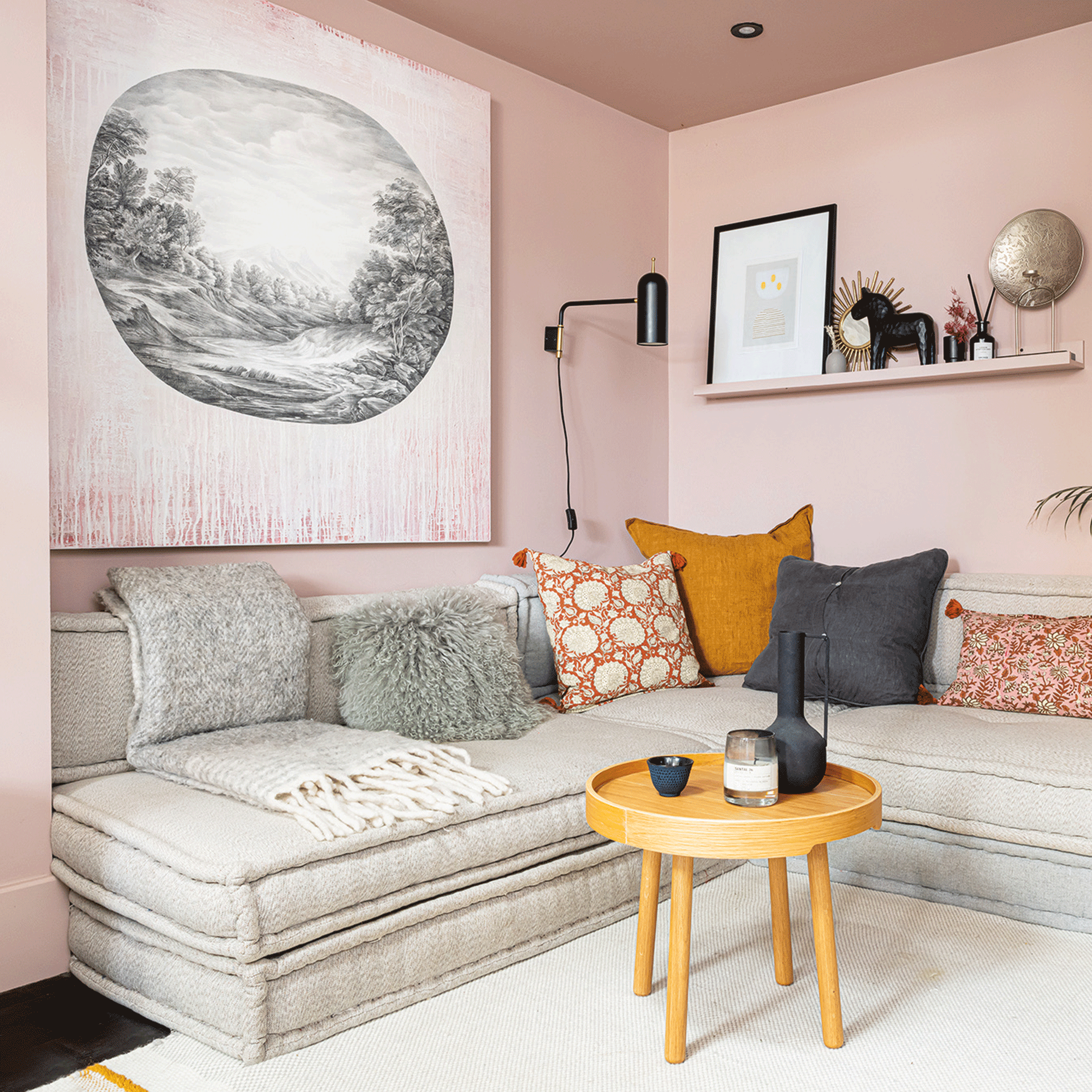
50 small living room ideas to maximise a tiny space
Planning small living room ideas shouldn’t be seen as a hardship, but rather an opportunity to flex your creativity. A tiny living room presents the opportunity to create a bold and cosy space, something that isn’t always easy to do in larger living room ideas.
That being said there is a certain amount of skill involved when crafting a petite living room into a functional space that works for the whole family. In a small space, you have to dedicate time to getting the building blocks of the room right, including how to arrange furniture in a small living room, once you get the right everything else should be gravy.
‘With a small living room, it’s worth taking time to really plan where your furniture is placed. Although the available space may limit your options, the right layout can make a space seem larger than it actually is,’ explains Adam Brown, Director at The Painted Furniture Company (opens in new tab).
‘Avoid the obvious solution of pushing everything back against the walls, instead allow space around key pieces of furniture. This will allow the eye to see more floor space, making your room seem bigger.’
Small living room ideas
We’ve rounded up all the best small living room ideas from design experts to help you realise the potential your micro family room could be hiding. There are tips and design tricks that will create the illusion of space, but also make sure you’re still able to make a style statement.
1. Go big with a rug
(Image credit: Future PLC )
In a small living room, the worst design mistake you can make is going small with your rug choice. If it is floating like an island between your furniture it will only make the space look smaller. This is your opportunity to go big so seize it.
However, you do need to make sure the rug your choose is in proportion to your furniture and space. ‘A good guide to follow is to ensure that your rug is larger than the biggest piece of furniture. For example, the longest side of the rug should always be longer by at least 6 inches than the largest piece of furniture, eg. sofa,’ says Therese Germain, Vice President of Product at Ruggable (opens in new tab), our go-to machine washable rug brand.
‘In a small living room, a 150x215cm rug will fit underneath a coffee table, or in front of a fireplace with two comfy chairs sitting almost completely on the rug.’
2. Go bold with your paint choice
(Image credit: Future PLC )
‘First instinct for a small living room is to keep it light, bright and de-cluttered (the word du jour right now) and while this is a perfectly acceptable decorating thing to do, especially if the room is flooded with natural light, sometimes going bolder can also be a wonderful option,’ says Patrick O’Donnell International Brand Ambassador at farrow and ball.
Patrick recommends trying a mid-tone green living room ideas for an invitation oasis like French Gray or Lichen. Alternatively, consider taking the plunge with a bold and dark colour like Down Pipe. ‘Our perennially favourite grey that never comes across as too chilly- it will just cocoon you in a softly dramatic way!’ adds Patrick.
3. Embrace the colour drenching trend
(Image credit: Future PLC / Veronica Rodriguez)
‘Another good trick is to paint EVERYTHING in one colour- a soft neutral such as Joa’s White or Stirabout will work in all lighting conditions and create a good backdrop to introduce your personal identity through cloth, pictures and furniture,’ says Patrick at Farrow and Ball (opens in new tab).
Embracing the colour-drenching paint trend as Patrick suggests works by distracting the eye from the edges of the room which are usually picked out in another colour. However, don’t feel you need to stick to soft neutrals, bold dark greys and navy can also look great in a small living room.
4. Define space with paint
(Image credit: Future PLC / Rachel Smith)
Even small living room ideas can benefit from the power of zoning a room with colour. If you use the room for dining and unwinding in front of the TV use contrasting paint colours to divide the room.
‘Using contrasting paint colours to create division in a room is an effective way to manage smaller spaces,’ says Paula Taylor, Head Stylist at Graham & Brown (opens in new tab). ‘If you were to split the wall up with contrasting paint colours, such as a deep blue and vibrant yellow, it will create the illusion of separate spaces, without the need to use furniture or physical divisions.’
Alternatively, for a softer look zone spaces with different shades of the same colour.
5. Switch out the sofa for a lounger
(Image credit: Future PLC/Carolyn Barber)
Can a living room still be a living room without a sofa? The answer is a responding yes! While choosing the best sofa might be the conventional furniture choice if you’re working with tiny living room ideas it could be worth considering a lounger, day bed or cuddle seat, over small living room sofa ideas.
‘Not every living space needs a sofa but often we feel the need to fill a space. When it comes to choosing seating, think about how the space is going to be used, who by and at what times of day. You might find a small chaise or classic mid-century lounger will be perfect,’ says Tom Rutt (opens in new tab), founder of TR Studio
6. Open up the space with shutters
(Image credit: Future PLC )
In a small space, it pays to be clever with your window dressings and consider forgoing the usual living room curtain ideas. Instead, blinds or shutters could be a smart option to open up the space.
‘Changing accessories in your living room can make a huge difference. Although curtains add an element of luxury to your relaxing space, if your living room is small, it might be worth swapping them out blinds or shutters,’ says Lisa Cooper, Head of Product at Thomas Sanderson (opens in new tab).
‘Blinds and shutters both make a room look taller, as they free up space on either side of the window.’
7. Experiment with a coloured ceiling
(Image credit: Future PLC / Anna Stathaki)
‘Paint is your friend in a small space, particularly when it comes to giving the illusion of height,’ says Lick’s Director of Interior Design and Colour Psychologist Tash Bradley. ‘By painting your ceilings in a light blue or light green, such as Lick’s Green 13 (opens in new tab) or Blue 02 (opens in new tab) the room will appear taller.
‘Or, paint your walls, ceiling and skirting all in the same colour so your eye does not get drawn to the corners of the room, which will create the feeling of space.’
8. Pick pink
(Image credit: Future PLC )
Pink living room ideas are perfect for a small space as an alternative to neutral living room ideas, the trick is to keep the shade light and powdery. ‘Lighter neutral colours will help reflect light around a small room, or a lovely soft alternative to a neutral is pink,’ says Lick’s Tash.
‘Lick’s Pink 01 (opens in new tab) and Pink 04 (opens in new tab) are great for small spaces as they make the room feel warm and welcoming, but also help to reflect the light.’ Pair the pink with a vibrant colourful sofa to add character and interest to the space.
9. Focus on one feature wall
(Image credit: Future PLC / Katie Jane Watson)
We know it’s hard, but in a small living room it is important to hone in on just a few key living room wall decor ideas. ‘In a small space, it can quickly feel claustrophobic if there’s too much asking for attention as your eye doesn’t know where to rest,’ explains Lucy Henderson, Head Designer at My Bespoke room.
‘Creating a clear focal point to draw you in is essential for rooms of any size but in a small one, try to scale it back. Pick just one wall to be the real show stopper, whether that’s with wallpaper or a gallery wall.’
10. Choose furniture with legs
(Image credit: Future PLC)
Kelly Collins from Swyft Home (opens in new tab) recommends furniture that’s raised off of the ground. ‘Selecting a sofa or armchair that sits on raised legs will help to bring a sense of light and space and make even the smallest living rooms feel airy,’ she says. When more of the floor is visible, the room appears bigger.
This trick lends itself well to any living room, as many of the best sofas and armchairs are finished with beautiful turned wooden legs. Lots of beautiful mid-century pieces are raised on legs, from sideboards and cabinets to sofas, keeping the floor on show.
11. Create a focal point with a gallery wall
(Image credit: Future PLC/Jo Henderson)
Centre your lounge space with gallery wall ideas above the sofa. Frame photos, prints, wallpaper samples and pressed flowers to create something that brings personality. The visual interest created by a cluster of prints will distract from the fact the room is small and anchors the space.
12. Enlarge with wide flooring
(Image credit: Future PLC / Jon Day)
Elements of the room with large surface area, like the walls and floors, have a huge impact on how a small space feels. Consider flooring options that will expand the space.
‘Use wide flooring planks or those laid on a diagonal tangent across the room,’ advises interior designer Vanessa Morgan (opens in new tab). Chunky floorboards will work better than slim ones, and a Berber rug with a diamond pattern will also create the impression of a broader area.
13. Break up a neutral palette with boho patterns
(Image credit: Future PLC / Anna Stathaki)
Like we mentioned earlier, neutral tones will help a small room to feel larger. Light coloured carpets, walls and furniture are a great way to keep a space feeling bright and airy, whatever the size of the room.
We love the little extra touches in this charming living room – the wall-mounted shelving unit provides the perfect space for personal mementos and accessories. If you’re prefer a modern small living room idea like this one, then simplicity is key.
14. Hide corners to enhance the sense of space
(Image credit: Future PLC)
Laurence Llewelyn-Bowen (opens in new tab) explains a simple bit of science around corners, and how to make a room feel larger by drawing the eye away from its edges. ‘Our minds become confused in a room, if our eyes can’t see corners,’ he begins.
‘If our eyes can see corners then our mind knows exactly what size the room is, but if you can find ways of disguising corners, hiding corners, drawing the attention of the eye to the middle of the wall rather than the edge of the wall, that will always help significantly.’ He suggests placing a tall plant or even having a table lamp in the corner of a room to distract the eye from the perimeter.
15. Go oversized with artwork
(Image credit: Future PLC )
A gallery wall will always be a popular way to decorate the wall behind a sofa and display favourite artwork and photos. But in a tight space, one large piece of artwork could stop the space from feeling cluttered and busy. Here, a large abstract print with tones of mustard and pink tie in with the sofa, while the rest of the space is kept bright and minimalist.
16. Hang easy breezy curtains
(Image credit: Future PLC / Dominic Blackmore)
‘Try to maximise the use of natural light with floaty window dressing and a statement/group of mirrors,’ suggests Paula Taylor from Graham & Brown. Keep window treatments sheer and light rather than having anything too heavy, and it’ll make the area around the window feel more spacious.
17. Soften with curved edges
(Image credit: Future PLC / Anna Stathaki)
When decking out your small living room, look for furniture with curved edges to offset all the harsh angles, from the doorframe to the windows. An oval midcentury coffee table in warm wood softens the look in this small, cosy living room, and the glass top prevents it from feeling bulky.
Circular cushions work well too, and we can personally recommend this circular jute rug from La Redoute (opens in new tab), available in a range of sizes (go as big as possible). Curvy furniture, soft furnishings and even the cute rounded leaves of a money plant will make a small living room feel inviting.
18. Prioritise multifunctional designs
(Image credit: Future PLC / James Merrell)
Wayfair’s Resident Style Advisor, Nadia McCowan Hill says multifunctionality is the number one rule to making the best of a small living room. ‘Go all in with multi-functional furniture,’ she says. A storage ottoman, at Wayfair (opens in new tab) is a great idea as it can triple up as a coffee table, footstool, and storage box.
‘It’s an aesthetic statement piece of furniture which is also storage savvy,’ Nadia adds. Just add a tray and some coffee table books when using as a table.
19. Go dark
(Image credit: Future PLC )
Ideal Home Editor Heather Young has just painted her living room (opens in new tab) in Railings by Farrow & Ball, and if you’re toying with the idea of a dark makeover, Lucy St George from Rockett St George says go for it. ‘It’s no secret that we’re big fans of a dark and dramatic living room scheme at Rockett St George (opens in new tab) and it’s a common misconception that black will make your room feel smaller,’ she begins.
‘In fact, it has the opposite effect. Painting the walls and ceilings of your living room in black leans into the cosy feel and helps creates an illusion similar to looking up at the night sky.’ Plenty of candles, table lamps and soft throws and you’re all set for optimal cosiness.
20. Choose storage furniture with a small footprint
(Image credit: Future PLC/Fiona Walker-Arnott)
Whilst living room storage ideas are still very much needed, regardless of the size of your space, try to make the most of ceiling height and avoid using too much floor space.
‘More and more customers have embraced ladder-style shelving to store and display, from paperwork and keys to houseplants and prized possessions,’ says Kate Gibson, Home Buying Manager, Habitat (opens in new tab). ‘A versatile storage solution, this style provides valuable shelf space with a minimal footprint.’
21. Create space using mirrors
(Image credit: Future PLC/Mark Luscombe-Whyte)
It’s the oldest trick in the book, but it really does work. You can instantly create the illusion of space by simply adding more living room mirror ideas. All the better still, like above, opt for an oversized mirror to cover an entire wall. The mirror will create the illusion of space by reflecting light and of course the interior decor – doubling up your small living room ideas.
‘We always recommend going for the largest mirror you can afford to make the most of the reflection and bounce as much light back into the room as possible. Alternatively, create a feature on the wall of your living room with a mix of vintage, foxed or antiqued mirrors for a unique take on the classic gallery wall,’ says Jane Rockett, Co-founder of Rockett St George.
22. Choose a broken plan layout
(Image credit: Future PLC/Anna Stathaki)
The modern interpretation of open-plan living, broken plan layouts are perfect for small living room ideas. This contemporary look is well-suited to modern living room ideas. You’ll have all the benefits of the sense of space that you get from open-plan. However, what broken plan also does if offer more of a visual separation between your zones without having to block them off with doors.
If a simple wall jutting out doesn’t separate the spaces enough, look to glass doors, instead.
23. Use paint to trick the eye
(Image credit: Future PLC/Dan Duchars)
Living room feature wall ideas do much more than just add pretty decoration. Trick the eye into your room appearing taller by carefully considered painting. Coat the bottom half of the wall in your favourite bright shade, which will draw attention.
Then paint the top half and the ceiling in a more neutral colour so it seems to disappear by comparison, and blurs the lines of where the walls end and the ceiling begins.
24. Open up with a serving hatch
(Image credit: Future PLC/David Giles)
Forget all those 70s connotations of serving hatches. Instead, think of how this addition could bring light and space to your small living room ideas.
A simple rectangle cut in between your living room and kitchen will make both your rooms feel larger without having to commit to an open-plan living room layout. Plus, you can still use the space for its intended purpose, except leave the pineapple hedgehogs behind.
25. Boost light with floor to ceiling windows
(Image credit: Future PLC/Carolyn Barber)
There’s nothing like natural light to make a space feel bigger. Amp up the sense of space in your lounge by giving your back wall totally over to floor-to-ceiling, wall-to-wall windows. If you have a lush garden beyond, this will only enhance the sense of light and space.
26. Open up to the hallway
(Image credit: Future PLC/Anna Stathaki)
While this might seem a dramatic move, you can increase the sense of space by opening up the wall behind the sofa, revealing the light-filled hallway ideas behind.
This is a clever idea if your front room feels dark and crammed, and won’t impact too much on the structure of your rooms, as you’ll only be opening up part of the wall. Always seek professional advice before grabbing a sledge hammer but keep in mind a ‘hole in the wall’ could be the answer to your small space issue.
27. Choose a neutral sofa
(Image credit: Future PLC/Colin Poole)
‘A neutral sofa can help lighten the space, however it’s worth remembering that neutral doesn’t have to mean selecting a plain design,’ says Suzy McMahon, Buying Director, Sofology (opens in new tab). ‘Opting for styles with beautiful details, such as curves, buttons or fluting, will add character to a small space without overpowering your scheme.’ Bear this in mind when looking for sofa ideas for small living rooms.
‘Additionally, cushions and throws in bolder shades and patterns can keep the look from feeling too pared back. Alternatively, an accent chair is a great way to add a pop of colour and will effortlessly lift a darker space.’
28. Keep it cohesive
(Image credit: Future PLC/Jo Henderson)
When working with small living room ideas, try and keep your colours cohesive, when it comes to furniture, accessories and wall colour too. ‘A cohesive colour palette boosts light creating a tranquil, snug oasis,’ says Nadia from Wayfair.
Sticking to two or three key colours will mean everything seamlessly sits together and nothing will jump out too much, making it dominate the room. Use living room paint ideas to zone spaces within the room and add plenty of plants to bring a feeling of life to the room.
29. Opt for built in everything
(Image credit: Future PLC)
If you need a lot of storage space in your living room, why not opt for built in everything!
Built in shelving and cupboards are much better space savers than freestanding. But a built in seating area too, will mean no space is wasted at all, especially if you add under-bench storage too. Choosing a coffee table with an open, wire base will also make the space feel roomier.
30. Save space with wall lights
(Image credit: Future PLC/James French)
In small spaces, it’s all about saving precious floor space so the room doesn’t seem too cluttered. Bear this in mind when choosing your perfect living room lighting ideas.
‘Opt for wall mounted lighting with a sleek profile to regain valuable floor space that would be lost to floor lamps or lamp topped side tables,’ advises Anna Cross, Home Living Buying Manager, Habitat. ‘We’ve seen high demand for plugin designs, as customers seek to create a cosy glow without the hassle of rewiring.”
31. Paint the skirting boards
(Image credit: Future PLC/Rachael Smith)
Breaking with convention, the trick to make a space feel bigger is to paint the skirting boards in the same colour as the wall. No more bold white borders. ‘One little tip, paint the skirting boards,’ advises interior designer Kelly Hoppen (opens in new tab). ‘It will make the whole wall look a lot taller. When you paint them white it’s a bit like wearing a sock and your trouser leg being too high. It kind of looks a bit odd!’
A brilliant analogy for the look of bold white skirting boards standing out from the wall colour, for all the wrong reasons – especially prominent when using a dark living room colour scheme. This trick will prevent the wall from being divided – helping to elongate them, so the room feels taller and therefore bigger.
Kelly Hoppen’s advice for painting skirting boards is a real game-changer in small spaces.
32. Add a feature wall in a warm colour
(Image credit: Future PLC/Fiona Walker-Arnott)
We all want our living rooms to feel cosy and restful. However, in a small space, you may feel apprehensive about introducing too many dark colours for fear of making the room feel cramped.
In that instance, pick a rich warm colour as a backdrop to a part of the room that’s all about relaxation, such as behind the sofa or your favourite armchair. So if you’re after cosy living room ideas, that deep shot of colour is a visual ‘hug’ that relaxes and draws us in, without making the room feel smaller.
33. Seamlessly transition to an outdoor space
(Image credit: Future PLC/David Giles)
If your small living room has an adjoining outdoor area, embrace the feeling of extra space. Sliding or bifold doors that open out fully will open up the space and create a sense of flow between the indoor and outdoor space. Choose coordinating furniture and furnishings to decorate the two areas to unite them and make the journey from one to the other feel seamless. This will help to make any small living area feel more generous by simply knowing the outdoor area is just beyond the threshold.
Alternatively, you could blur the boundary between indoors and out by painting your window frames the same colour as the walls, suggests Catharina Björkman, Scandi interiors expert at Contura (opens in new tab). ‘This directs your gaze towards the view as opposed to the window, which is now uninterrupted by the shock of a different colour frame and can be incredibly peaceful for the mind. Connecting with nature is vital for wellbeing, so allowing your home to blur into the view from the inside out is a great way to start,’ she says.
34. Use lighting to your advantage
(Image credit: Future PLC/David Giles)
In order to make the most out of your space ensure you have at least three working lights in the room. Light should be located at different heights, be indirect and allow your eye to move about the room. More light and more varied light is always good for a compact room.
35. Take storage to new heights
(Image credit: Future PLC/ Lizzie Orme)
Don’t let vertical space go to waste. Hang pictures, choose tall furniture and think about practical living room shelving ideas. A striking picture or wall hanging will draw the eye up, making a space feel more expansive than it actually is.
Just because your living room is verging on the small side, it doesn’t mean that you should hide away all your favourite belongings in storage.
If you have objects that are worthy of showing off then display them along an open shelf, above the sofa. This idea is great for when floor space is at a premium.
36. Replace curtains with blinds
(Image credit: Future PLC/Alexander James)
Kelly Hoppen’s design advice for small spaces is to ditch the curtains and go for a living room blind idea instead. ‘Often people focus on something which really doesn’t need to be changed,’ explains Kelly. She suggests it can be as simple as changing a few little tiny things to make all the difference – such as the curtains.
If you are wondering how to dress a bay window, particularly one that is small and challenging then steer away from curtains. ‘I would put blinds up rather than curtains,’ advises Kelly. ‘This would actually make the room seem taller.’
What a great insider design tip to help make any small space feel instantly larger. The free space either side of the windows would create the illusion of airy space.
37. Up the storage potential
(Image credit: Future PLC/Colin Poole)
The key in a small space is to make the most of every inch available. When it comes to storage think outside the box and create bespoke storage solutions that use the free vertical space on walls and unused corners and nooks created by living room fireplace ideas as an advantage.
An affordable way to use a recess space for storage is to fit stacked floating shelves. Staggering them allows you to use both sides of the wall. The openness helps to keep the look light and airy, rather than boxed in. Just don’t overwhelm the room with clutter, warns Lisa Cooper from Thomas Sanderson (opens in new tab). ‘It may look like you can fit a lot inside, but in the long run, your room may look messy,’ she says. Use the shelves for displaying your very favourite books and trinkets.
38. Wall-mount and conceal a TV
(Image credit: Future PLC/ Simon Whitmore)
A wall-mounted TV is always going to be the better option for small living room ideas. Firstly we don’t want it taking up valuable space! Secure your modern flatscreen to the wall to create a streamlined look, freeing up the space beneath where you would otherwise have to accommodate a TV stand. Above a disused fireplace helps to use up otherwise redundant wall space too.
Look for smart ways to disguise your TV to prevent it standing out as point of focus. Cleverly concealing the large black oblong, that looks like a black hole, will help to stop it encroaching on a small space.
39. Make your own media centre
(Image credit: Future PLC/Jo Henderson)
Free up floor space, from storage units, by creating your own media centre that takes up minimal space. Fix an MDF panel to the wall and mount your TV screen and floating shelves on it, one above and one below if needed.
The space saving shelves will allow for storage without taking up too much needed space. The area underneath the bottom shelf allows for extra storage for items such as slim drawer units or drum storage stools.
40. Utilise awkward architectural spaces
(Image credit: Future PLC/David Cleveland)
Does your living room lack space due to awkward room proportions? Often with period properties the features which we love the most, such as bay windows, present a logistical nightmare for arranging furniture. If you have a compact sofa it should fit neatly into the position, without taking up valuable floor space.
Alternatively use the awkward area to house larger, bulkier furniture pieces such as sideboards and TV units. This prevents the pieces overpowering the rest of the small living room ideas, because the space would be otherwise unused anyway.
41. Hang baskets to provide extra wall storage
(Image credit: Future PLC/Joanna Henderson)
If you are faced with small space living the only way really is up! Make the most of any floor space by keeping it as clutter-free as possible. That includes any small bits and bobs you might otherwise have laying around.
Willow baskets are an attractive way to solve the storage problem. Ideal because one they look great and two they are sturdy enough to hold all manner of clutter – a storage idea for a family living room.
Hanging from decorative hooks that can take a lot of weight, these baskets are great for quick end-of-day tidy-ups for toys, books, magazines, iPads and all the other stuff that tends to lay around.
42. Add storage near the ceiling
(Image credit: Future PLC/Georgia Burns)
Mount some carefully camouflaged white storage units at the top of the living room walls to stash clutter out of sight. Off-the-shelf kitchen wall cabinets are ideal for this. That said, be very careful about the maximum load that each unit can take when wall-mounted – you don’t want everything crashing down.
43. Avoid a corridor effect with a corner sofa
(Image credit: Future PLC/David Giles)
If your small living room ideas are based around a long, thin space, then it can be prone to feeling rather corridor-esque. Dark sofas will enhance this, so look for a pale L-shaped design to both open up the space and create a useful and cosy corner.
Choosing the best corner sofa set up means there will also be more room for extra seating by way of large floor cushions or a footstool.
44. Draw attention to the windows
Walls in Cream White and Mustard Jar Easyclean Matt emulsion, £25 for 2.5ltrs, Crown Paint
(Image credit: Crown Paint)
To let as much light in as possible make sure there is nothing obscuring your windows. Painting the window surround can help to draw attention to the source of natural light, which aids the feeling of space.
Also, remember to keep on top of cleaning windows, this will lighten and brighten up the room beyond.
45. Make your coffee table work harder
(Image credit: Future PLC)
When it comes to small living room ideas, hard-working, multi-functional pieces of furniture are key. Coffee tables are often overlooked as items which can double up their use. Look for versions which have integrated storage, allowing you to clear away any clutter at a moment’s notice.
Some options also come with removable trays in addition to the storage, providing an extra surface which can be added as and when needed.
46. Lead the eye away from the door
(Image credit: Future PLC/Polly Eltes)
Whether a country cottage or a studio flat, it can be tricky to create a relaxing bolt hole when your front door opens straight into your living room. Take the emphasis away from the entrance by creating a focal point with thoughtfully arranged living room seating. Arrange your seating and surfaces facing into the centre of the space, visually blocking the door.
47. Factor in textural pieces
(Image credit: Future PLC/Brent Darby)
Decorating with white on walls, ceiling and floor always wins for small living room ideas, but it can leave it feeling clinical and stark.
Take the chill off a compact nook by mixing and matching fabrics and textures. Think leathers, woods, sisal and raffia to add both a tactile dimension and warmth with the natural tones. This is perfect for a country living room idea.
48. Distract the eye with characterful furnishings
(Image credit: Future PLC/David Giles)
While banishing clutter might help small living room ideas feel more open, if you’re a fan of the cosy, lived-in look such a pared back scheme will do little for you. But small doesn’t have to mean bare and characterless. Try the classic combination of dark leather furniture and traditional fireplace – there’s nothing like it for creating a warm, cosy environment.
Add much-loved items and accessories – in an interesting, character-filled scheme, no one will be thinking about how small the room is.
49. Make storage fit in seamlessly
(Image credit: Future PLC/Colin Poole)
Use architectural features to incorporate smart storage. Build storage seamlessly into alcoves either side of a fireplace, for example. Give the surrounding original features a modern update with a fresh coat of paint and light retouching to keep things contemporary.
Small living room ideas need to be kept fresh and uncluttered with well-chosen storage. A great way to make a small living room feel larger is to keep it meticulously tidy and in order to do that, everything in the room needs to have its proper place. Bespoke fitted floor-to-ceiling shelves and cupboards that make use of every inch of spare space in alcoves beside a small living room fireplace.
50. Keep it to scale
(Image credit: Future PLC/Oliver Gordon)
If you have a little living room, don’t go overboard with a huge L-shaped sofa that’s big enough for the whole family, the dog and the neighbours when they pop round for a cuppa. There are plenty of living room sofa ideas that could be a better fit for your space. ‘Oversized pieces will create a crowded effect which can be unsettling in a relaxing environment,’ agrees Paula Taylor from Graham & Brown.
So keep it simple – a two-seater sofa is often all you need. Especially when paired with other seating solutions such as floor cushions or an ottoman. Ask yourself if you could manage with an equally comfy but far less invasive ‘snuggler’ or ‘loveseat’. Otherwise known as a 1.5 seater, this small living room ideas staple can easily accommodate a parent and child – or a cuddly couple.
How do you make a small living room look bigger?
‘If you are short for space in the living room, adding some height to your key pieces of furniture will help create an airy, open feel to help enlarge the room,’ advises Patricia Gibbons, Designer, Sofa.com (opens in new tab). ‘Not every piece needs to be elevated but adding legs to your sofa would be most effective for bringing in the illusion of space. There is something about being able to see more floor which creates the feel of spaciousness especially when you aren’t spoiled for it.’
And in terms of a flooring choice, David Snazel, Hard Flooring Buyer at Carpetright (opens in new tab) offers this advice, ‘For small rooms, a light wood finish floor with a single plank design will help create the perception of space within small living room ideas. In a broken plan layout carry the same flooring through from the kitchen to conjoining areas to create a consistent flow between the rooms. Chevron wood flooring can be especially effective running from a narrow kitchen into a separate dining or living space to help these areas feel harmonious. ’
How can I decorate my living room when it is small?
It’s all about making clever choices when buying furniture for small living room ideas. ‘Linear furniture designs with a minimal profile are ideal for smaller rooms,’ explains Rachael Fell, Furniture Buying Manager at Habitat (opens in new tab). ‘The open lines of a wire metal coffee table gives the illusion of more space as the surrounding scene is visible through it. Look out for designs that incorporate shelving into their silhouette to maximise storage capabilities.’
And when it comes to colour, be brave and go for that bold shade you love, regardless of the size of the room. ‘Some fear that adding a deep or bright colour to a small room will make it appear claustrophobic, opting instead for light neutrals to keep the space open,’ says Helen Shaw, UK Director, Benjamin Moore (opens in new tab).
‘However, when working with a small area, dark colours cleverly absorb the light of a space, making the division between walls appear blurred. This ‘blurred edges’ effect adds depth and dimension to a room, making it appear larger.’
Where do you put a TV in a small living room?
If your living room is more of a snug, and you use it generally for cosying up and watching movies, you don’t need to worry too much about where the TV goes, as it’s all about being comfortable. Céline Erlam of Indie & Co (opens in new tab) advises, ‘A TV needs to be at the correct height in relation to your sofa- you shouldn’t need to look up to view, and ideally, place it central to your sofa.’
She goes on to say, ‘Before you start work on your snug or small living room ideas, think about the audio systems and TV that you have so you can conceal any cabling’
But if you’re not keen on having your small living room TV idea on show, there are some smart tricks to help blend it in.
‘TV’s are a necessary evil so there’s no sense in trying to pretend they don’t exist! Particularly in a small living room, they can stick out like a sore thumb,’ says Lucy Henderson from My Bespoke Room.
‘You can opt for dark colours on the walls so that the TV isn’t such a stark contrast against it. You can also frame it within a gallery wall which stops it from being such a focal point as your eye is then drawn to the pictures beside it.’
What tricks can help make a living room look bigger?
‘There are lots of clever ways to create an illusion and make a smaller sized room look bigger and more spacious. Whilst it may seem boring to some, choosing an off-white paint colour such as Farrow & Ball’s Strong White will really enhance light refraction and make the room feel light and airy,’ suggests Tom Rutt, founder of TR Studio.
However, that doesn’t mean you can’t fill your small living room ideas with colour. If you do want to mix it up with dark shades on the wall look to mirrors and clever furniture choices to help your small living room look bigger.
‘Don’t try and fill a small room with furniture. You need to prioritise what is important for you and start there. A large wall mirror will help bounce light and give the impression of more space,’ says Helen Stephens, Creative Director at Stephens + Stephens.
‘Try blinds within the window reveal so they are neatly installed. Large billowing curtains can also overpower a small space.’
What colour furniture goes in a small living room?
‘Any colour furniture will work in a small living room as long as it creates visual harmony with the rest of the space,’ comments Paula Taylor, Head Stylist at Graham & Brown (opens in new tab). ‘A contrasting piece will create boundaries and divide the space so opt for colours that will blend and create a visual colour block.’

